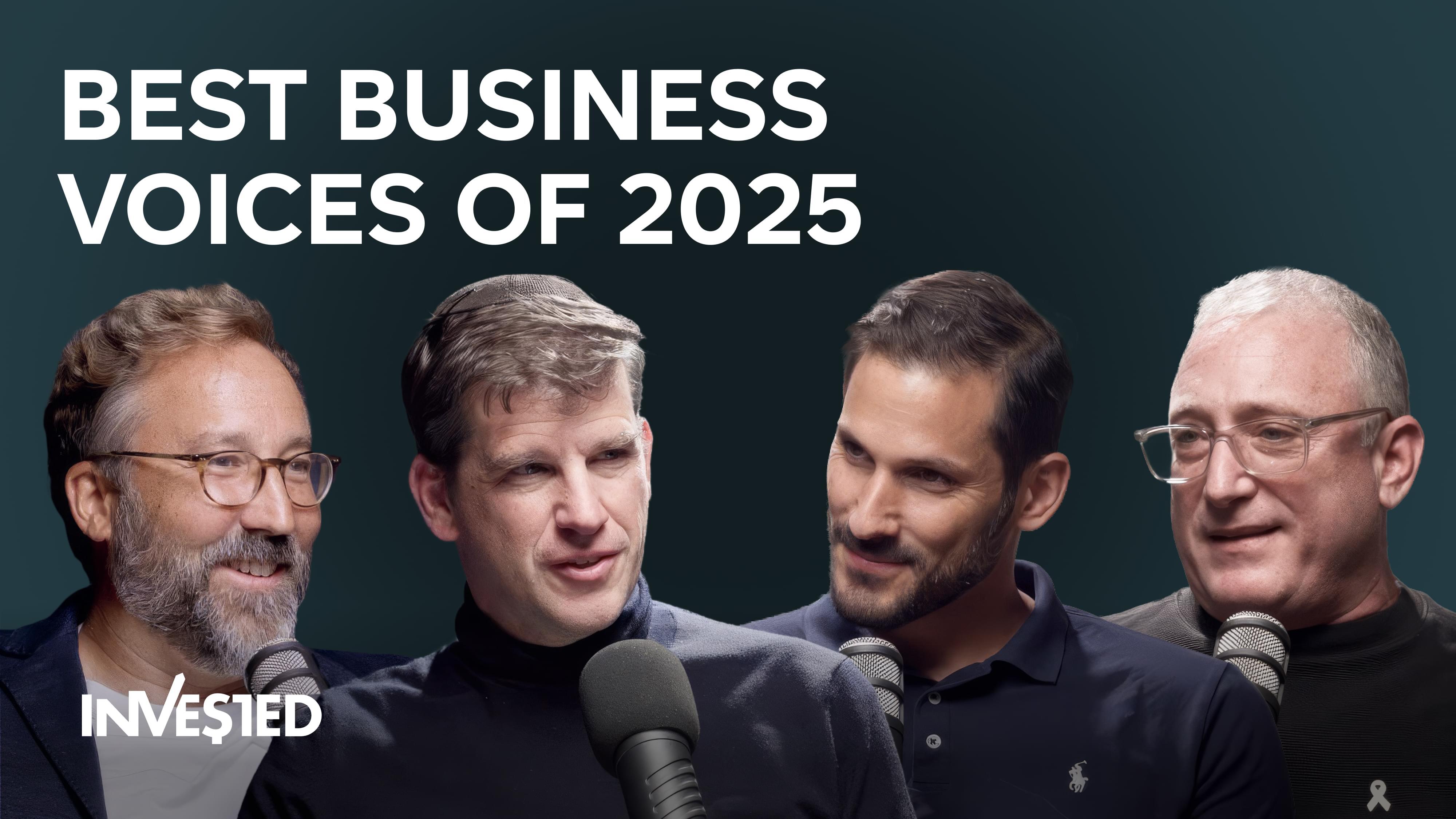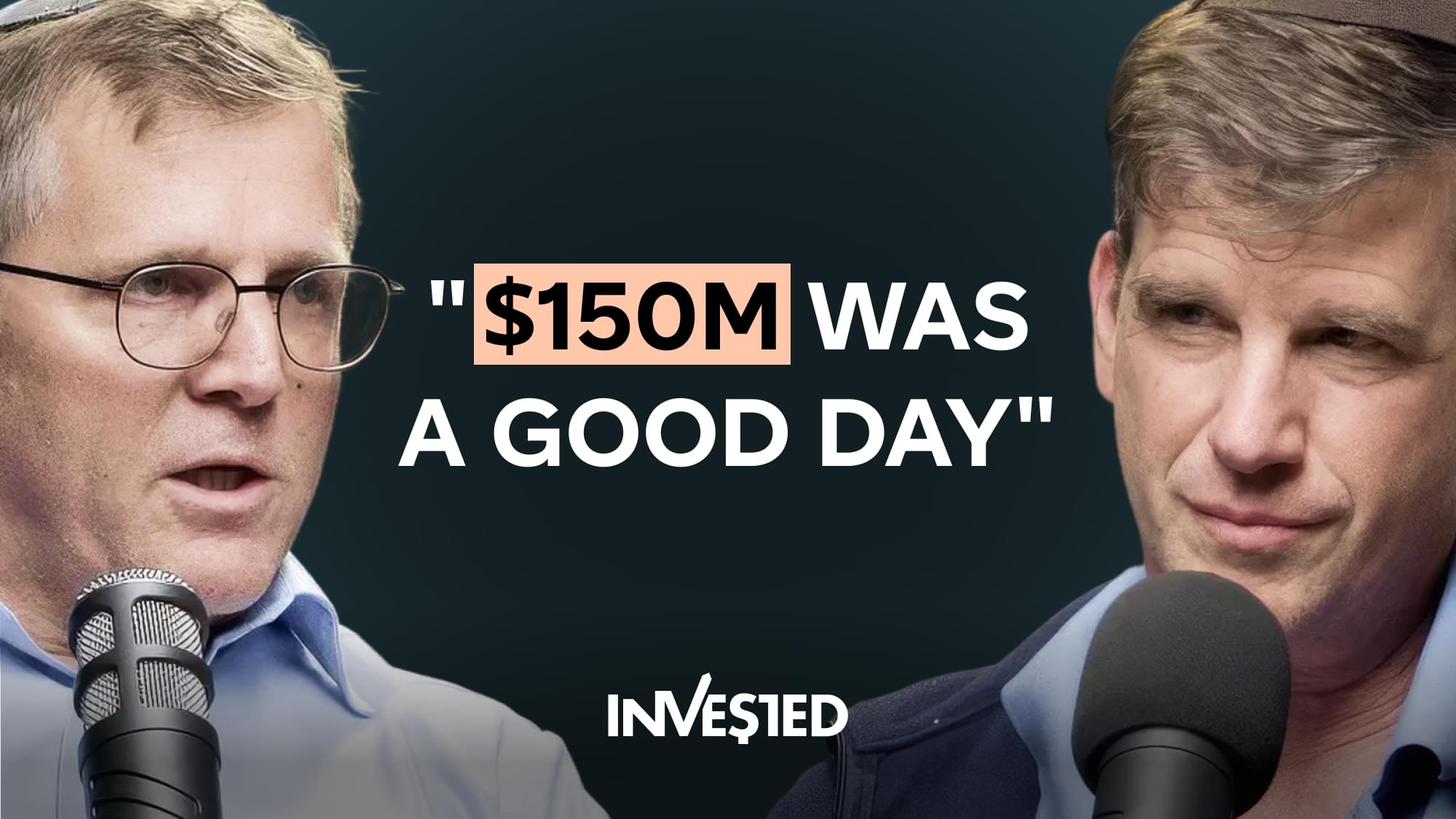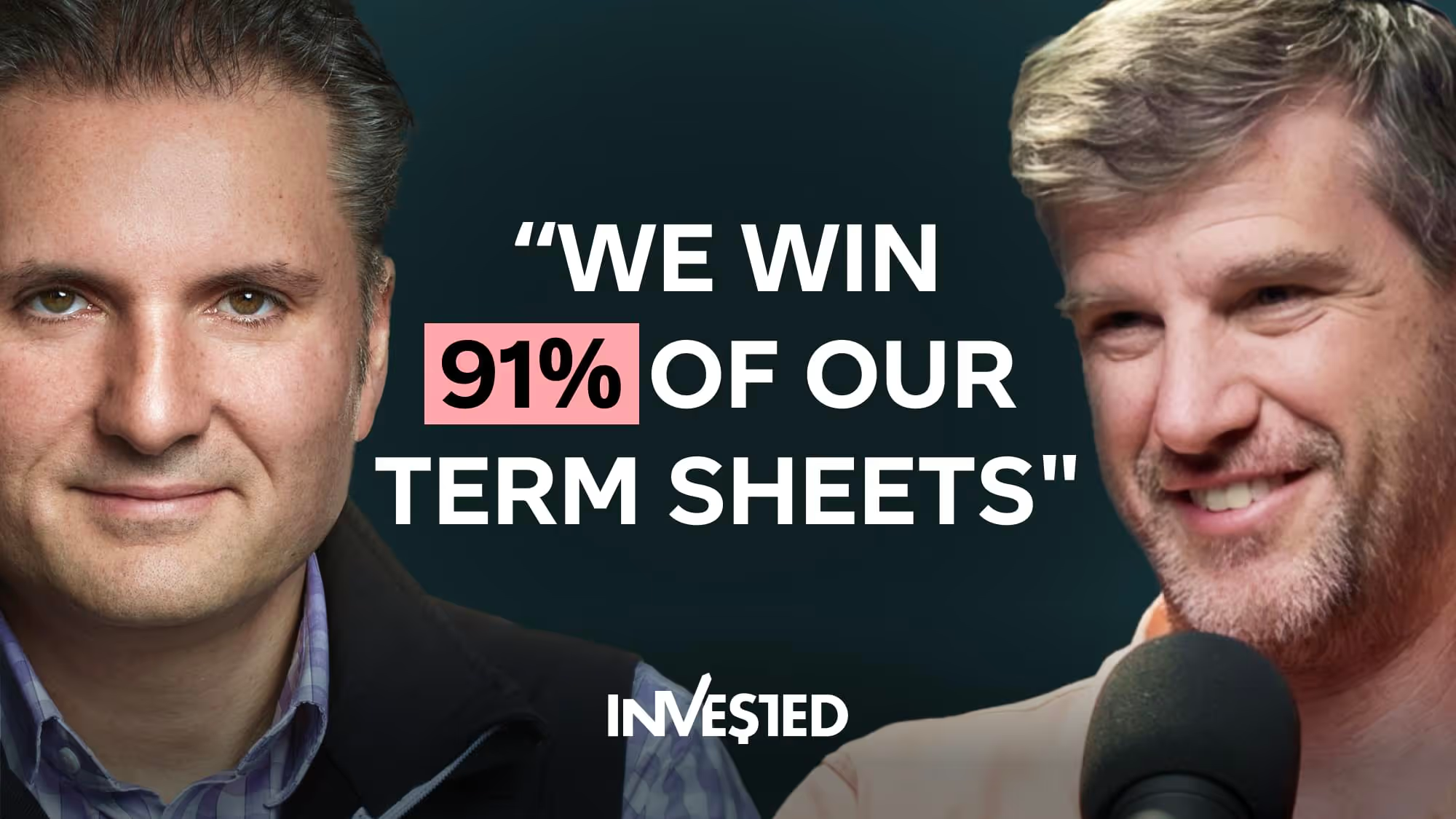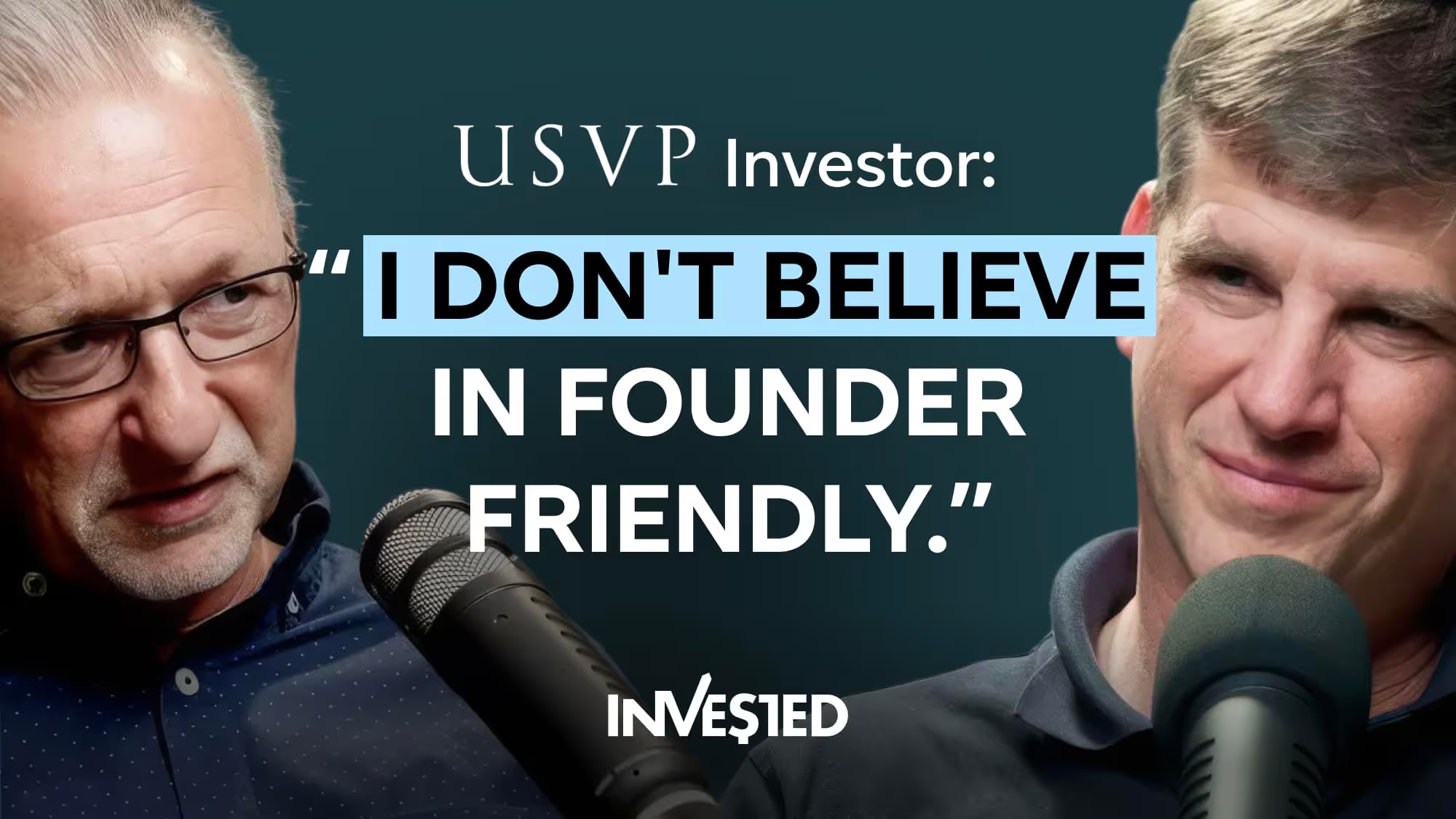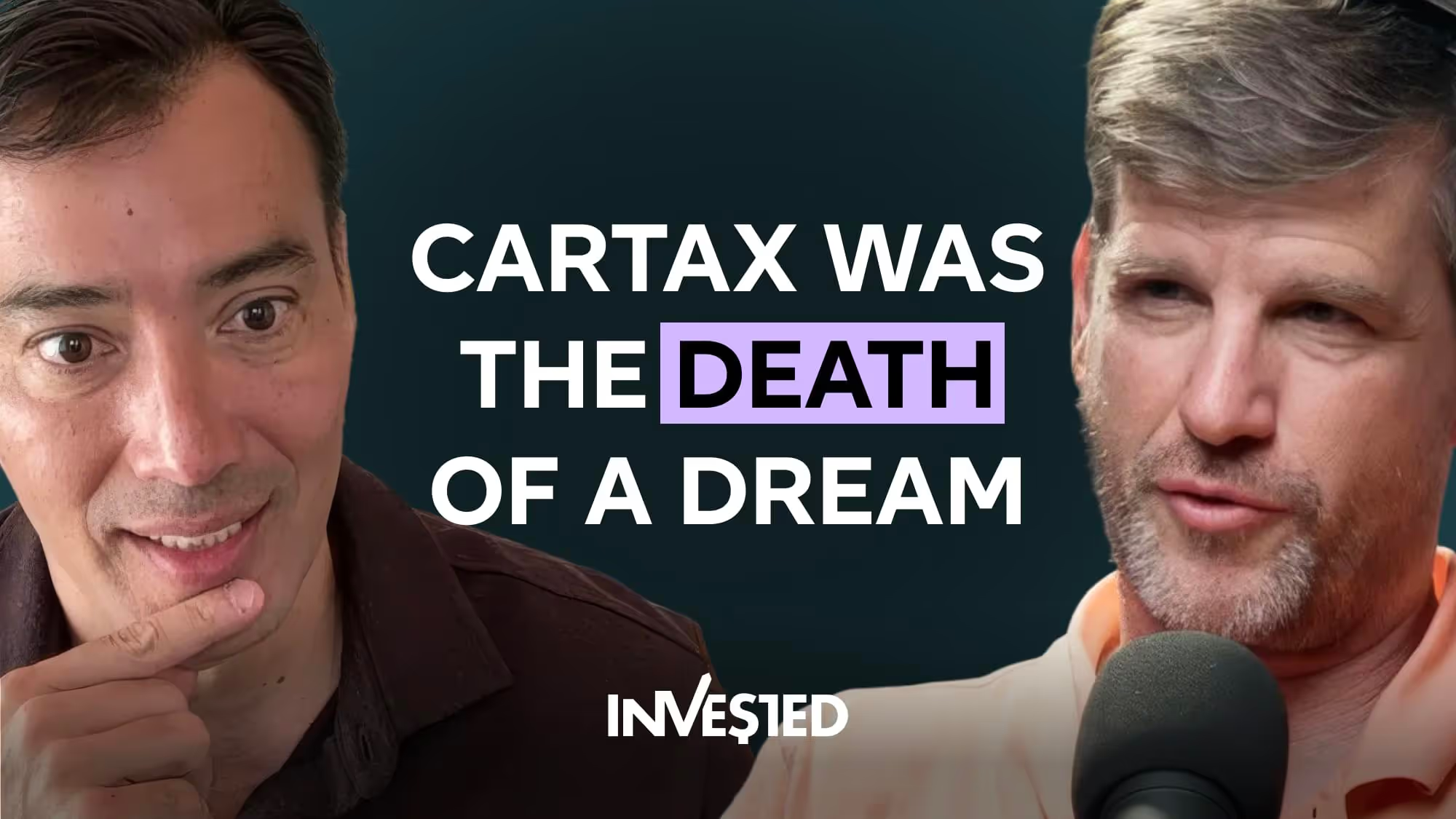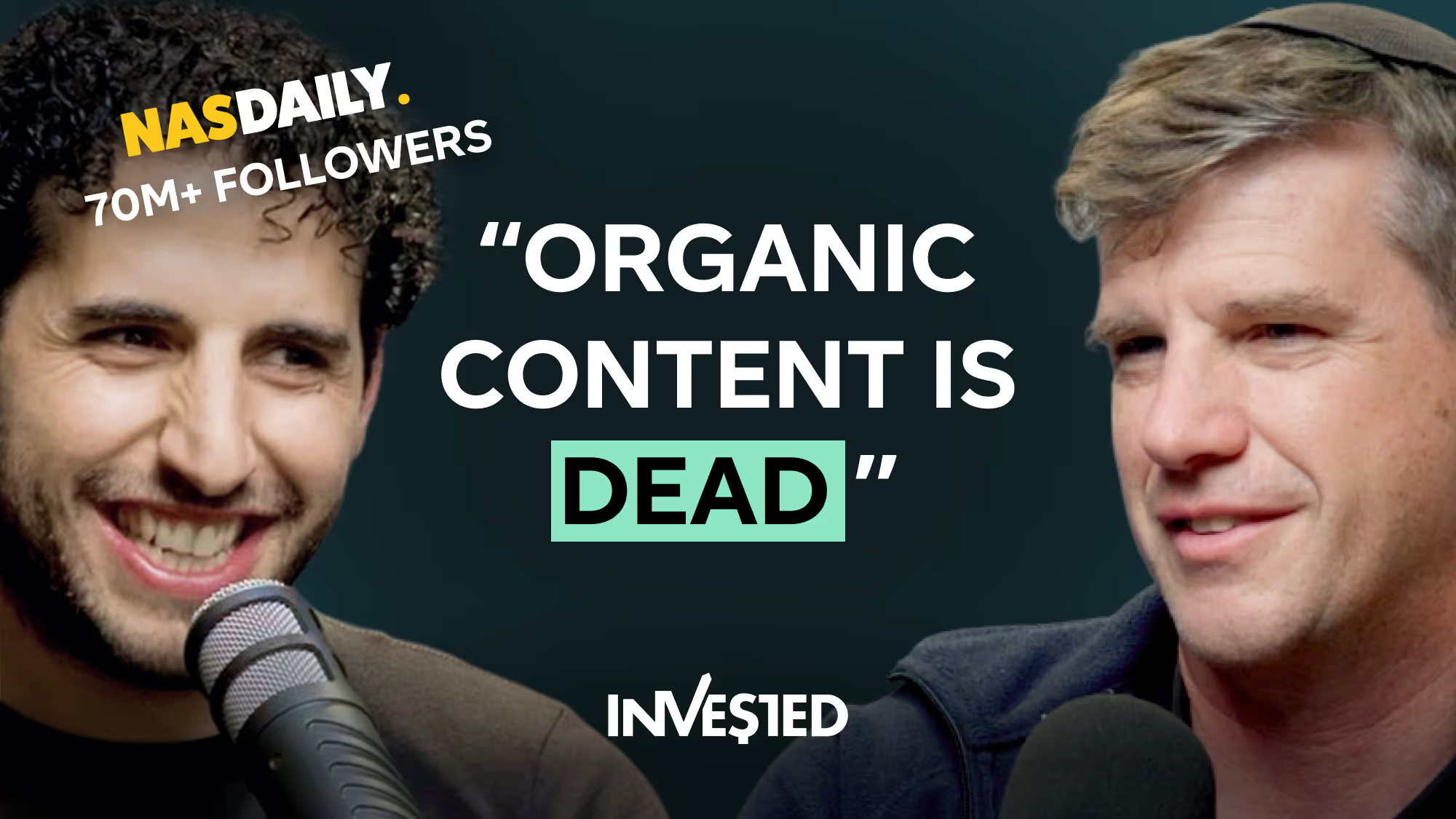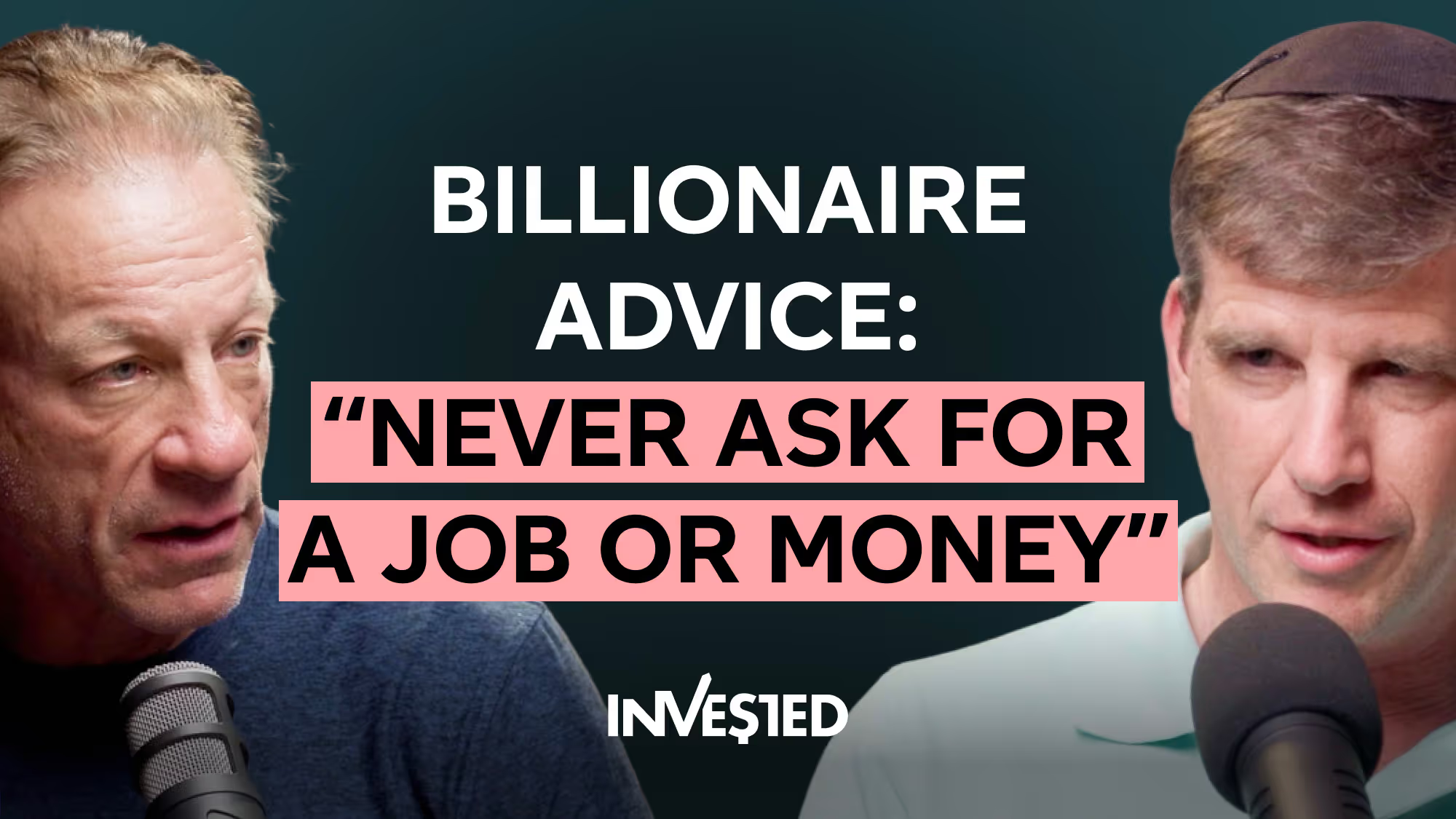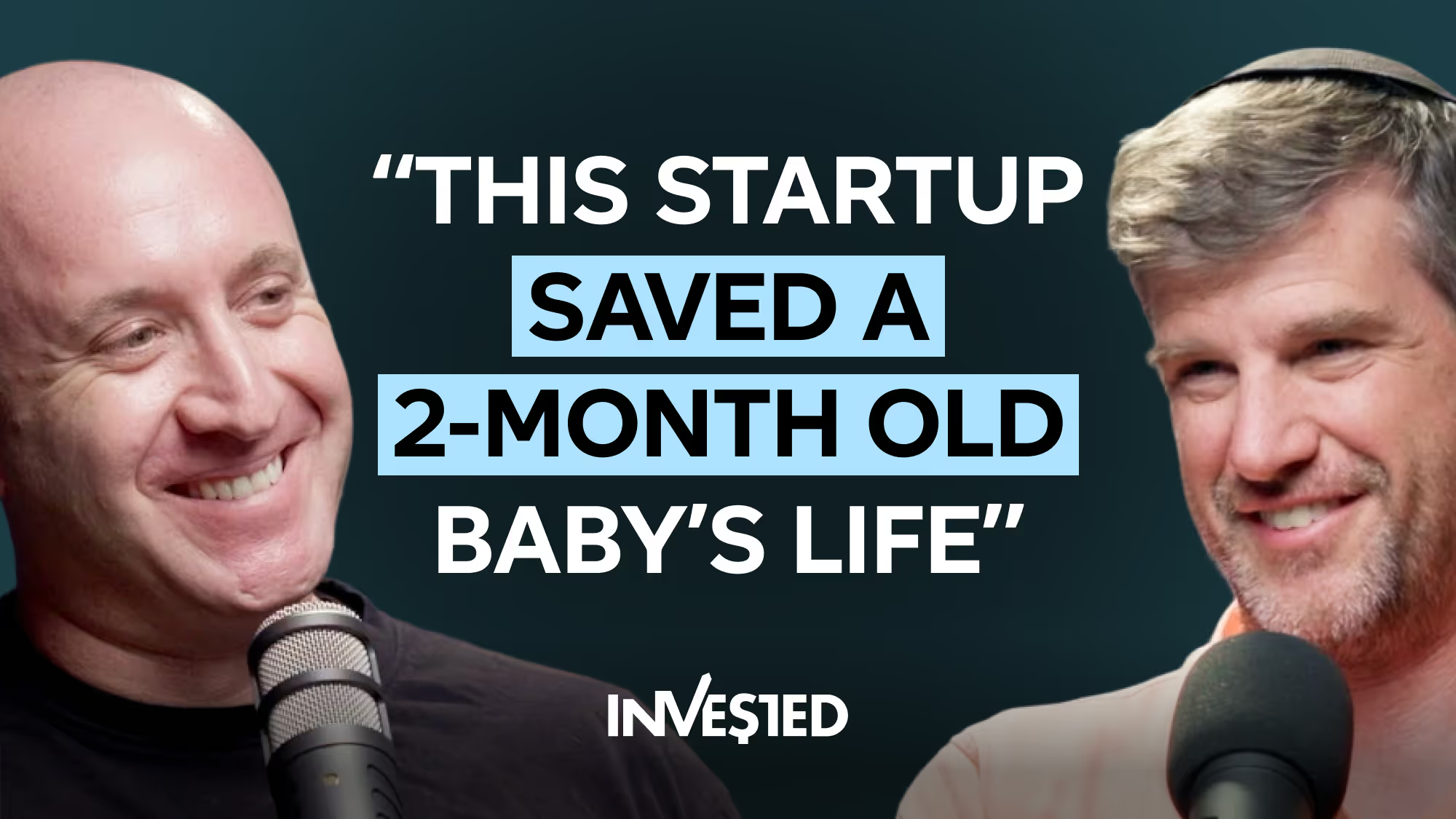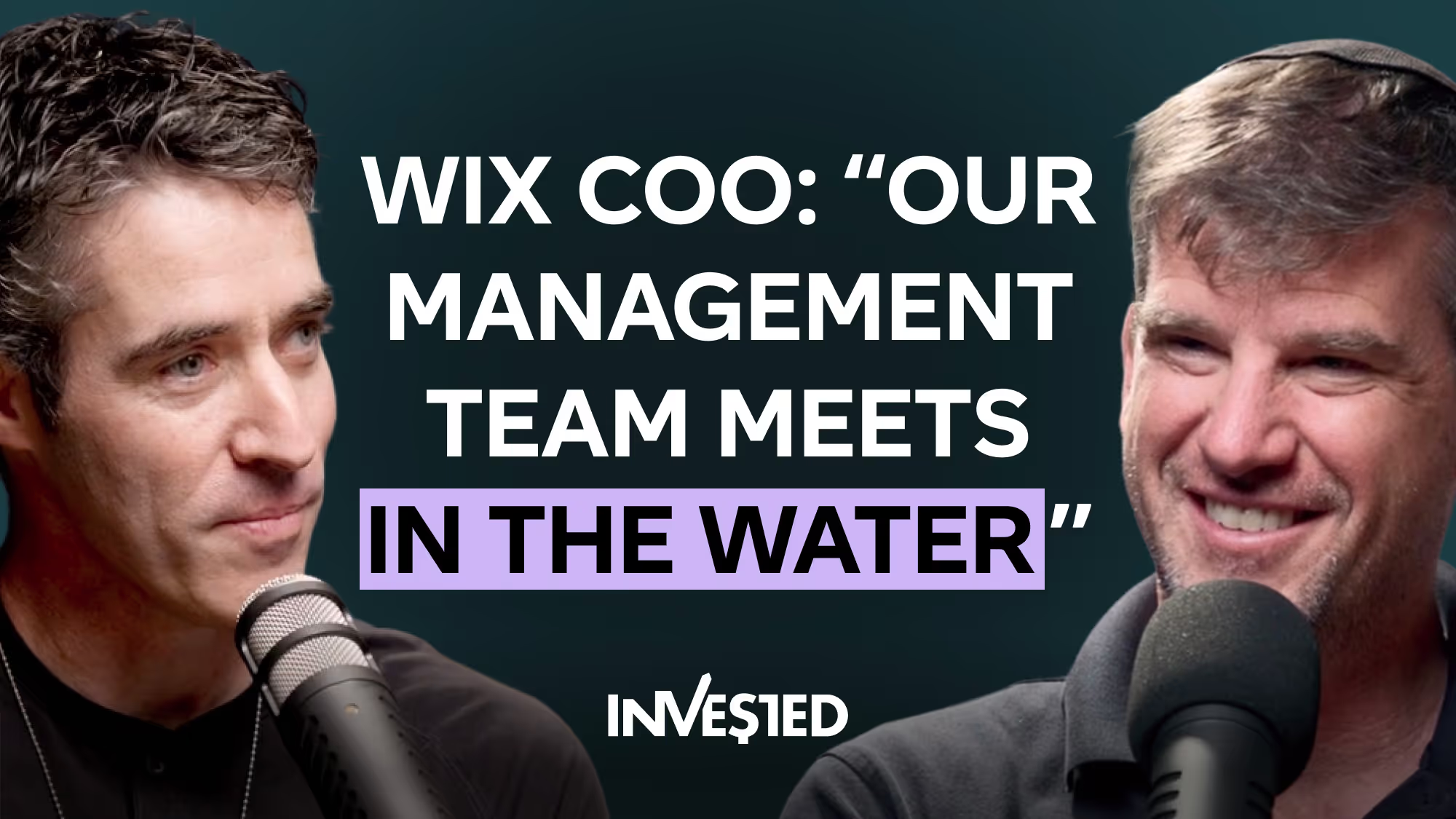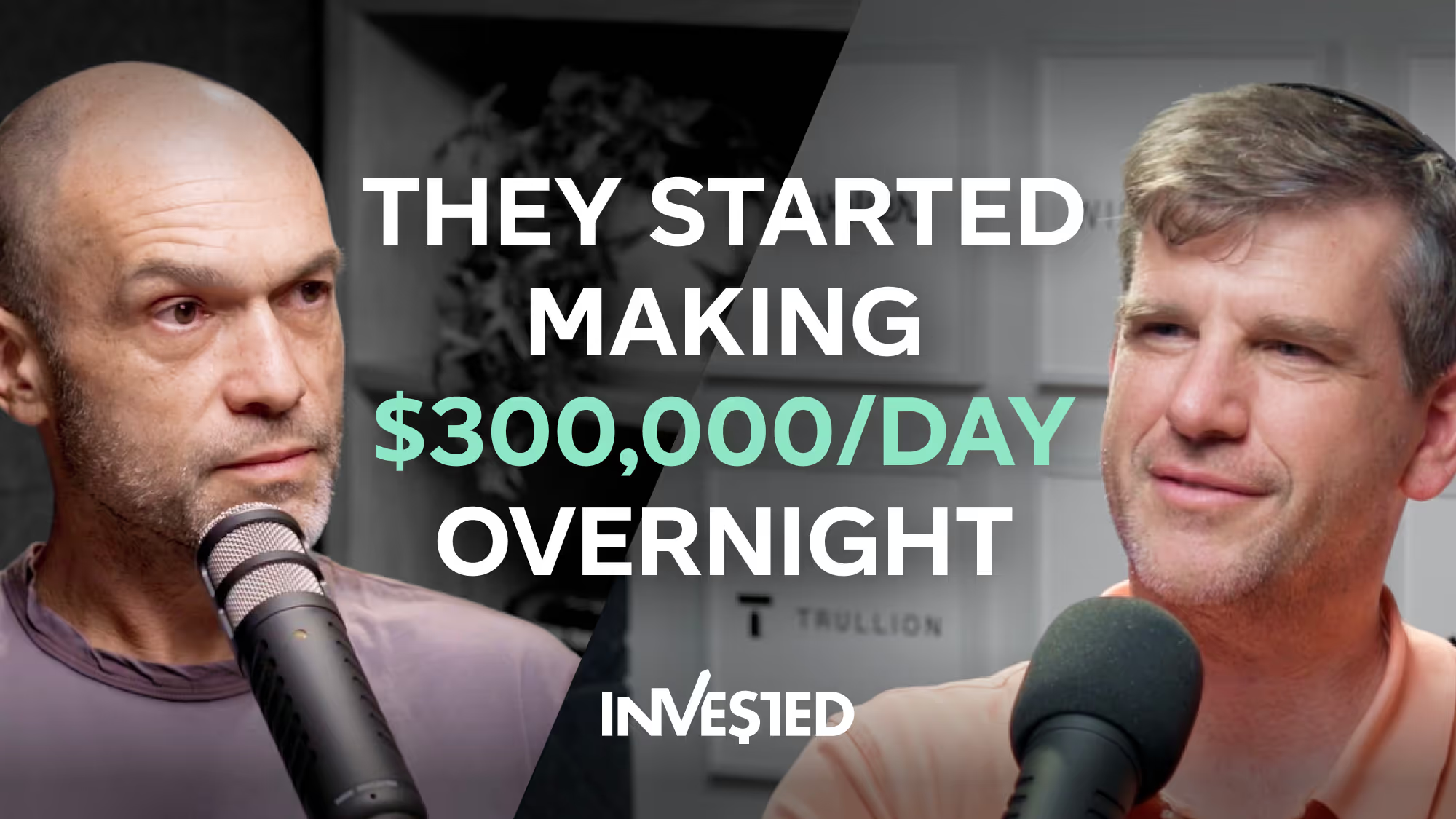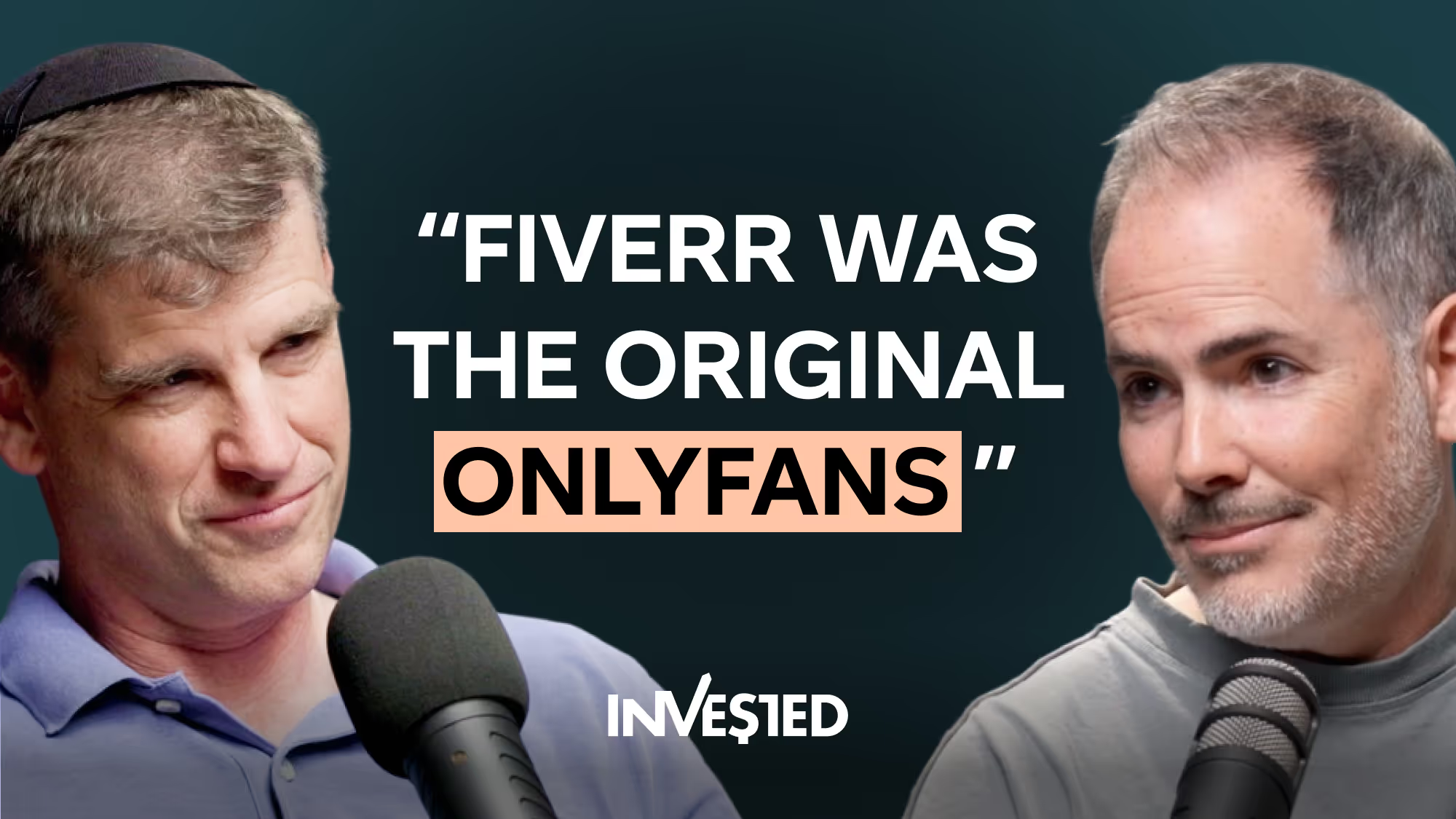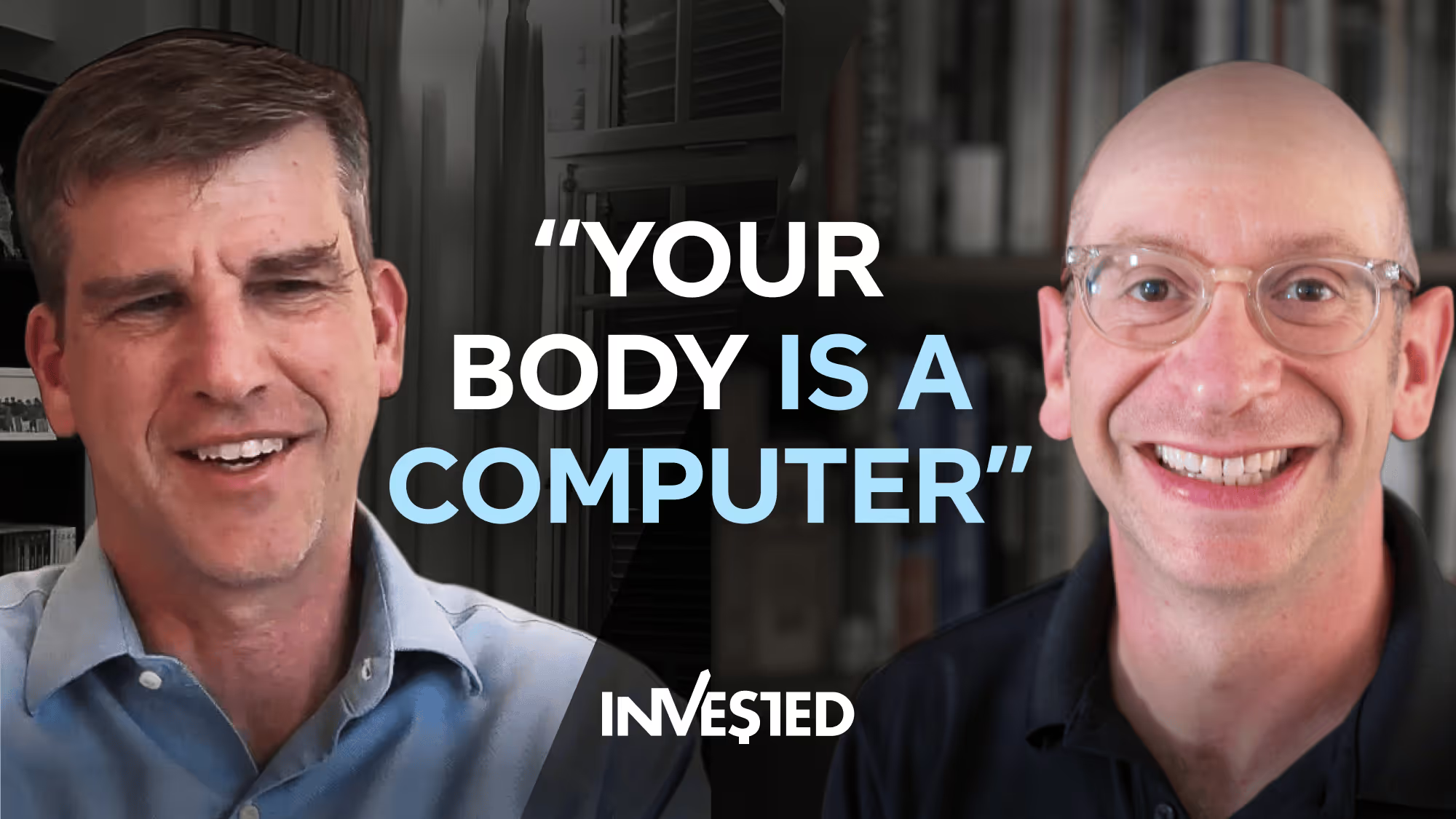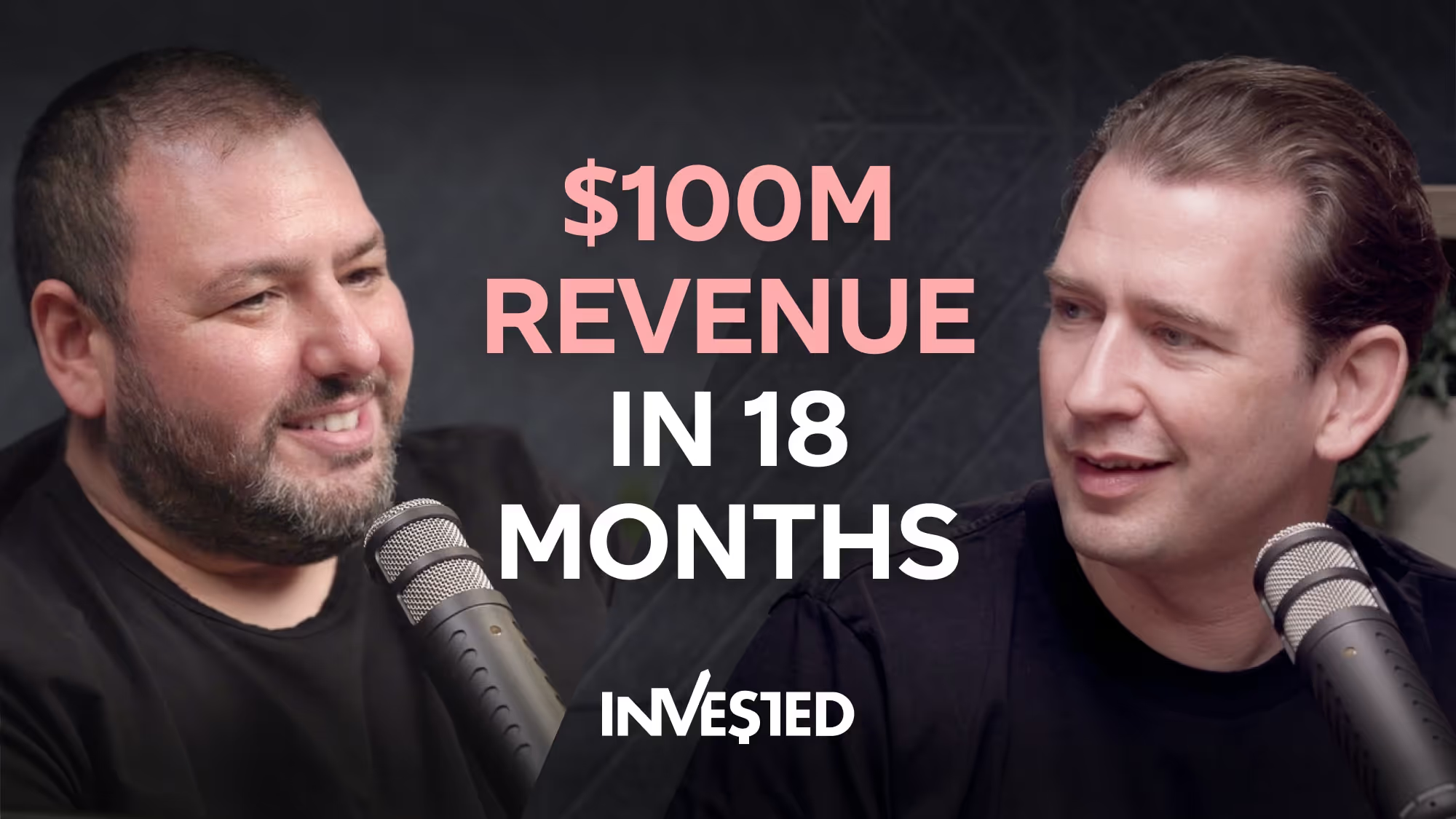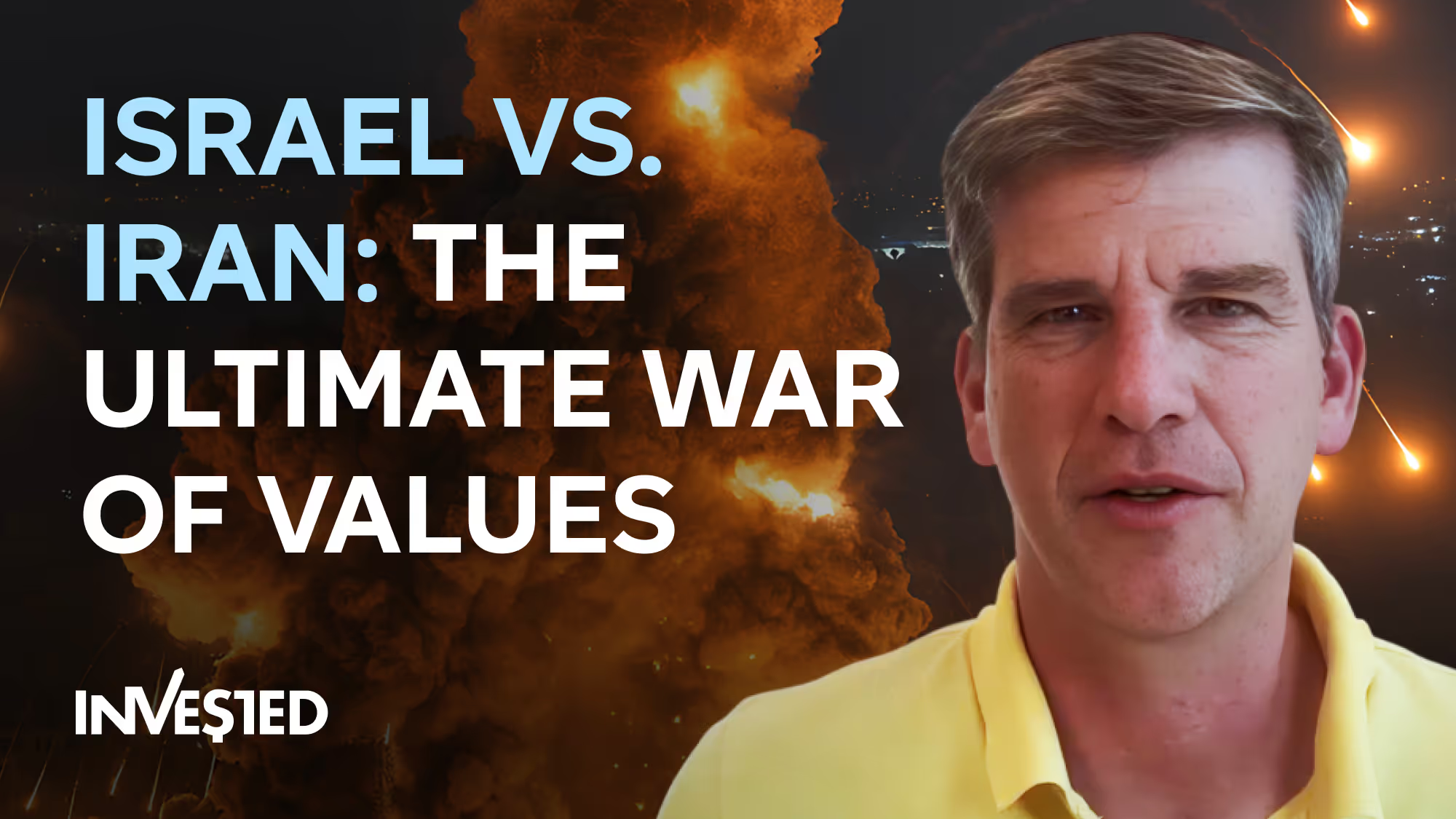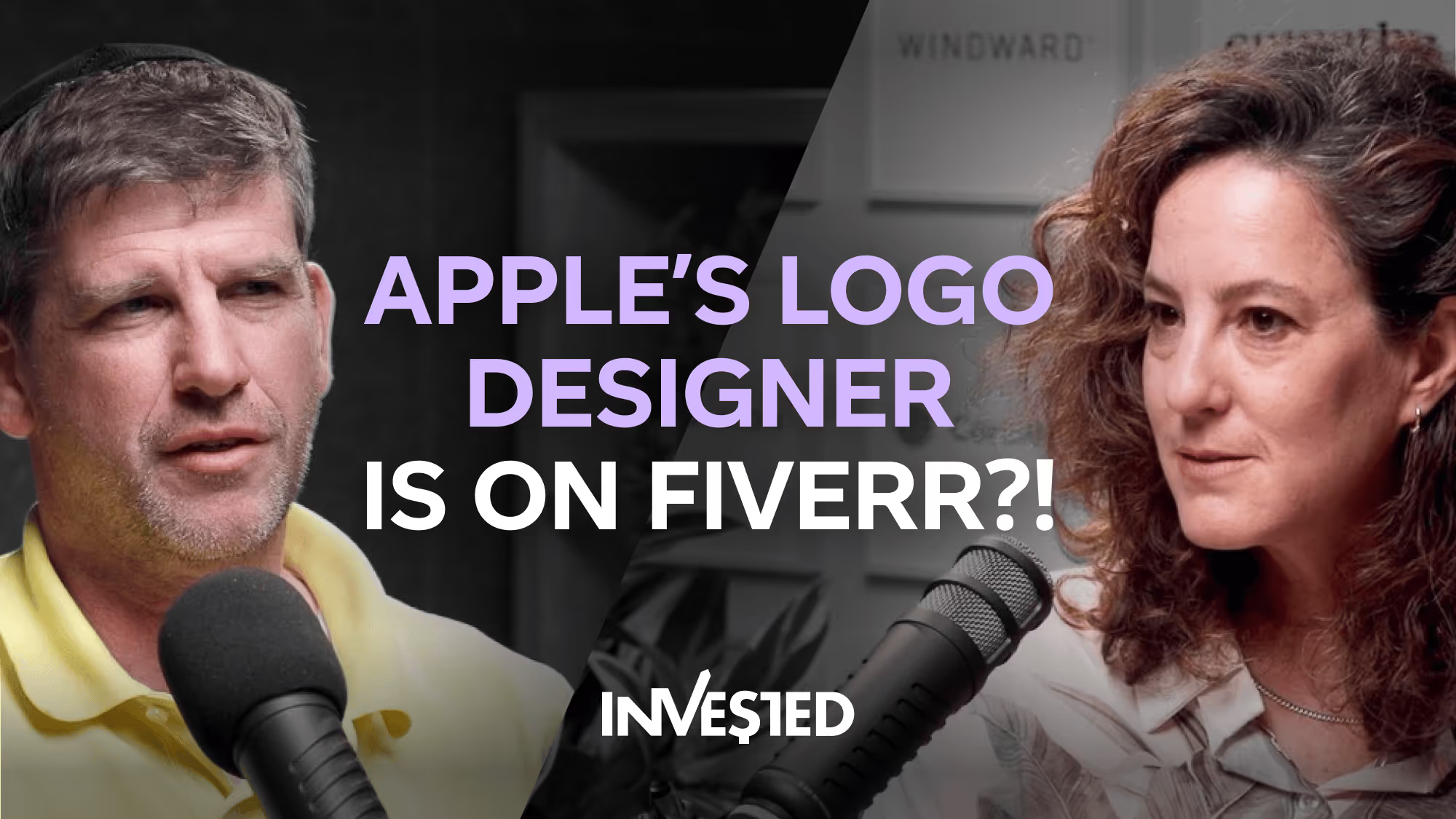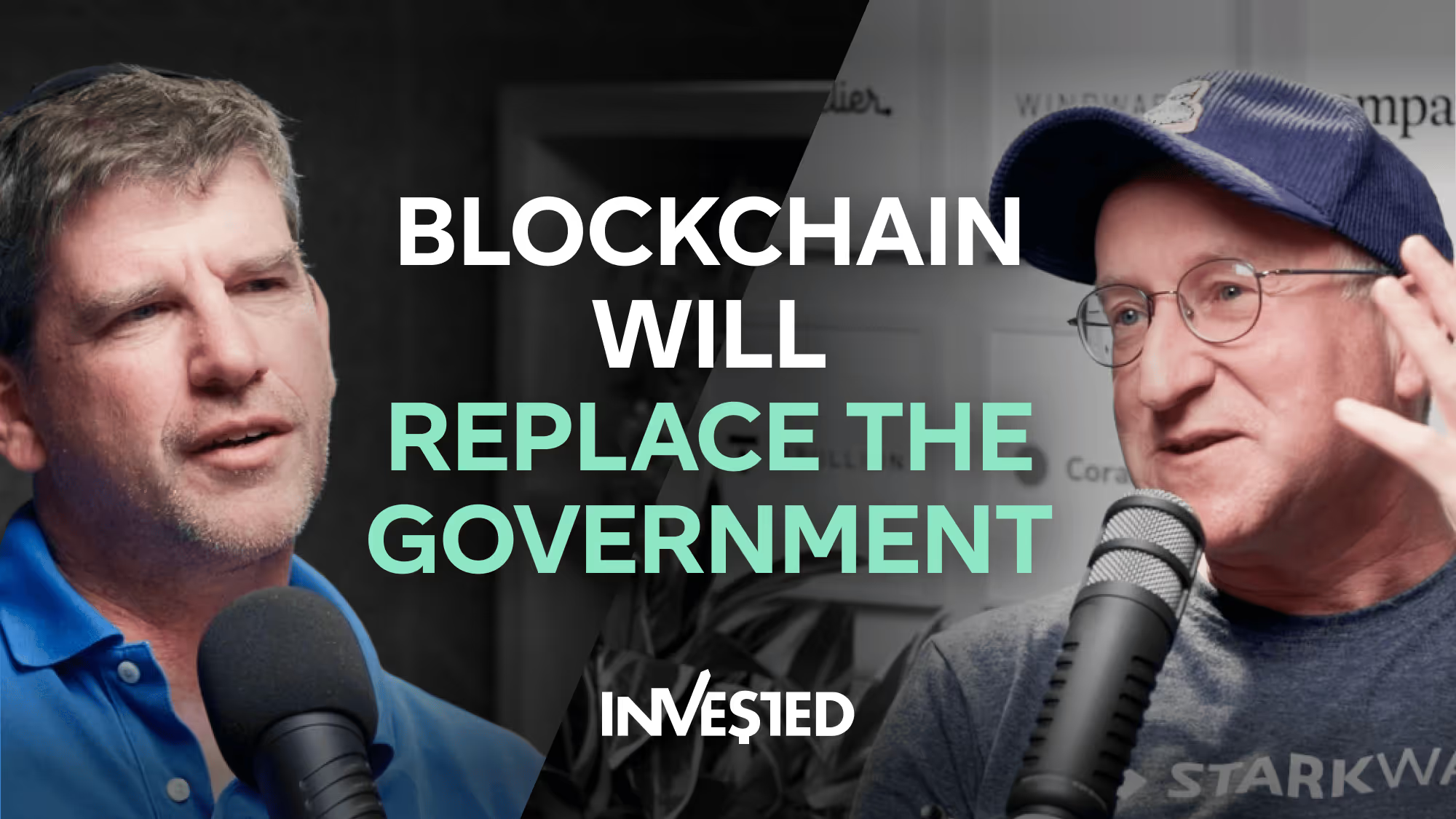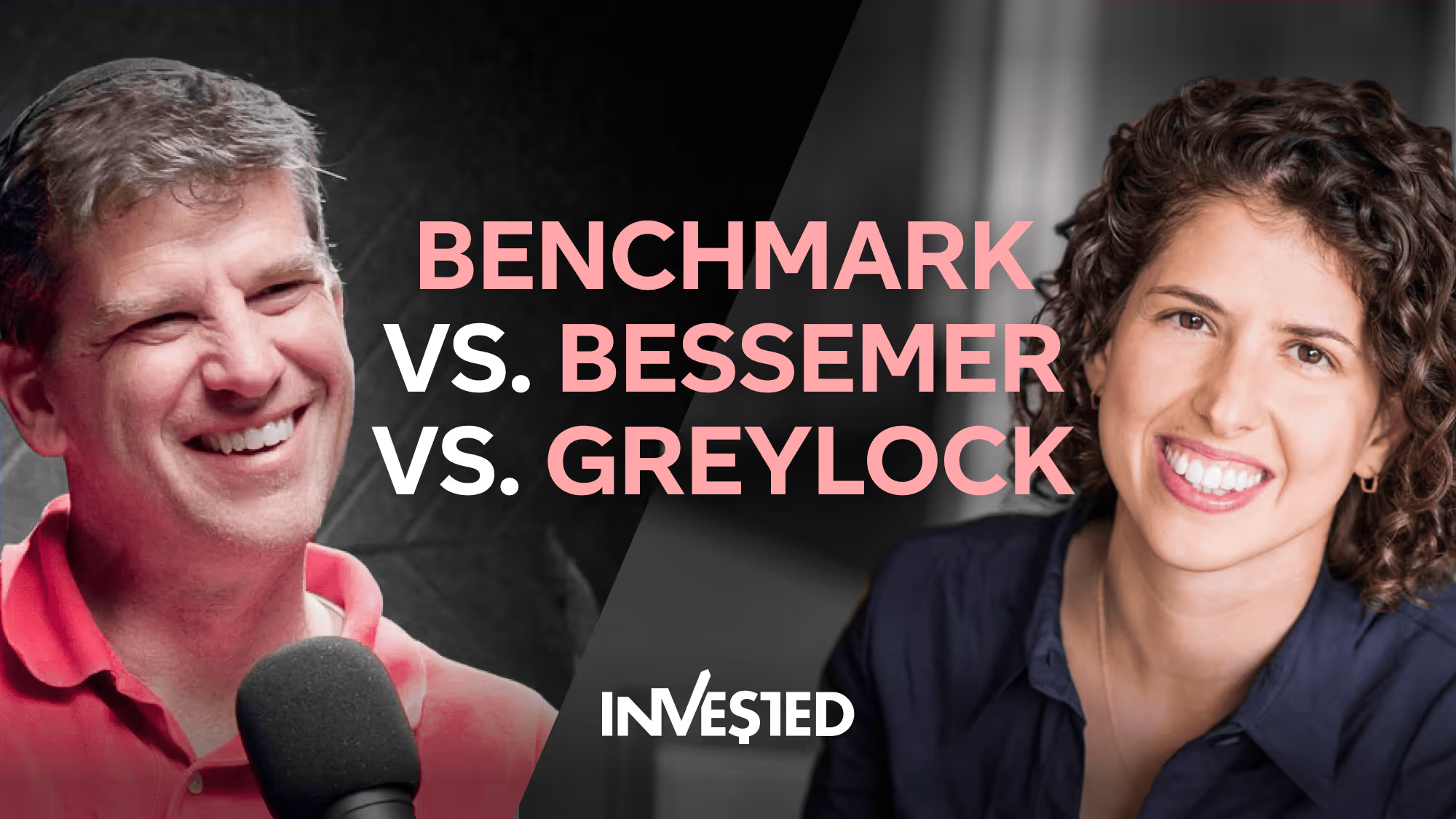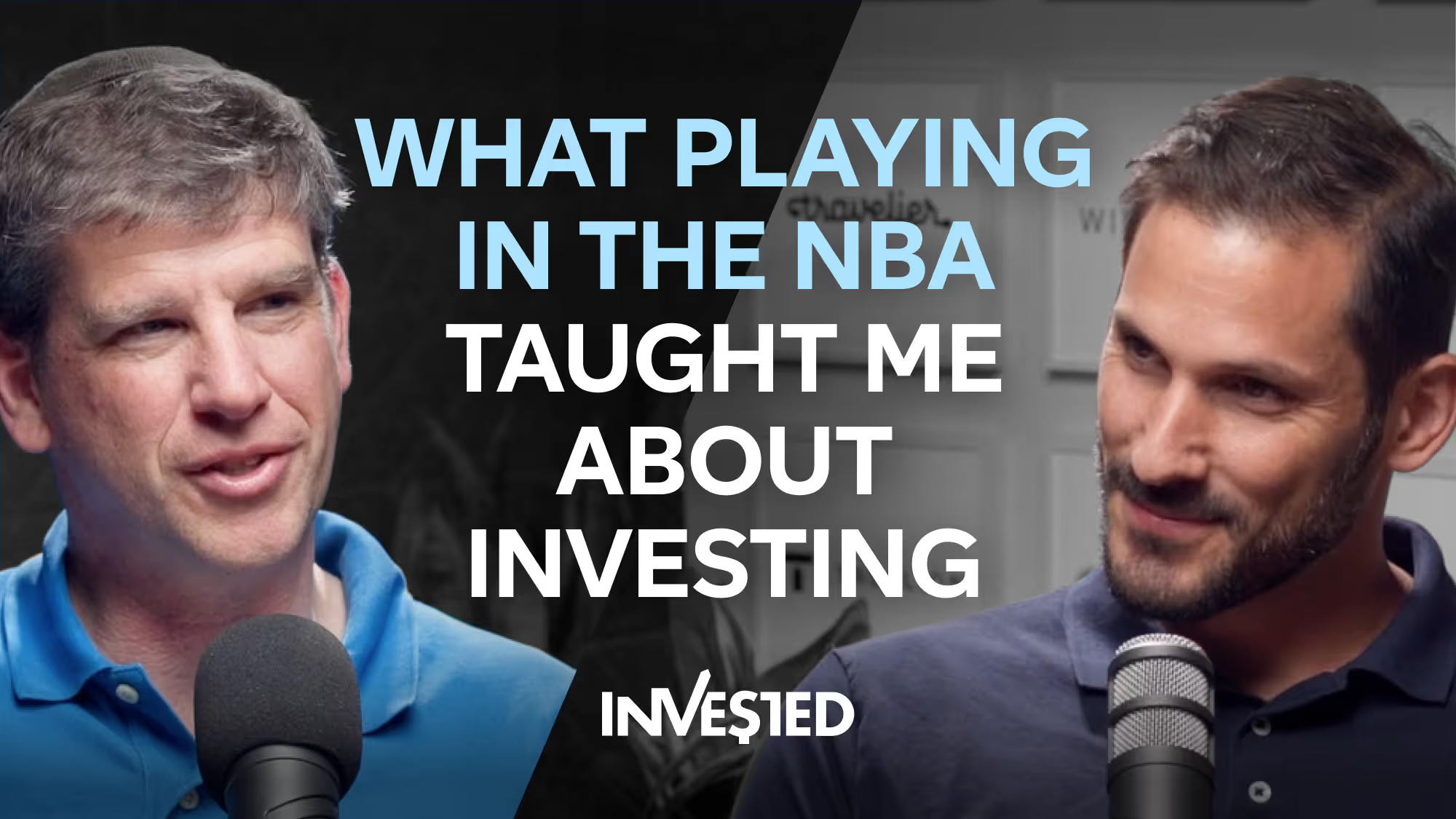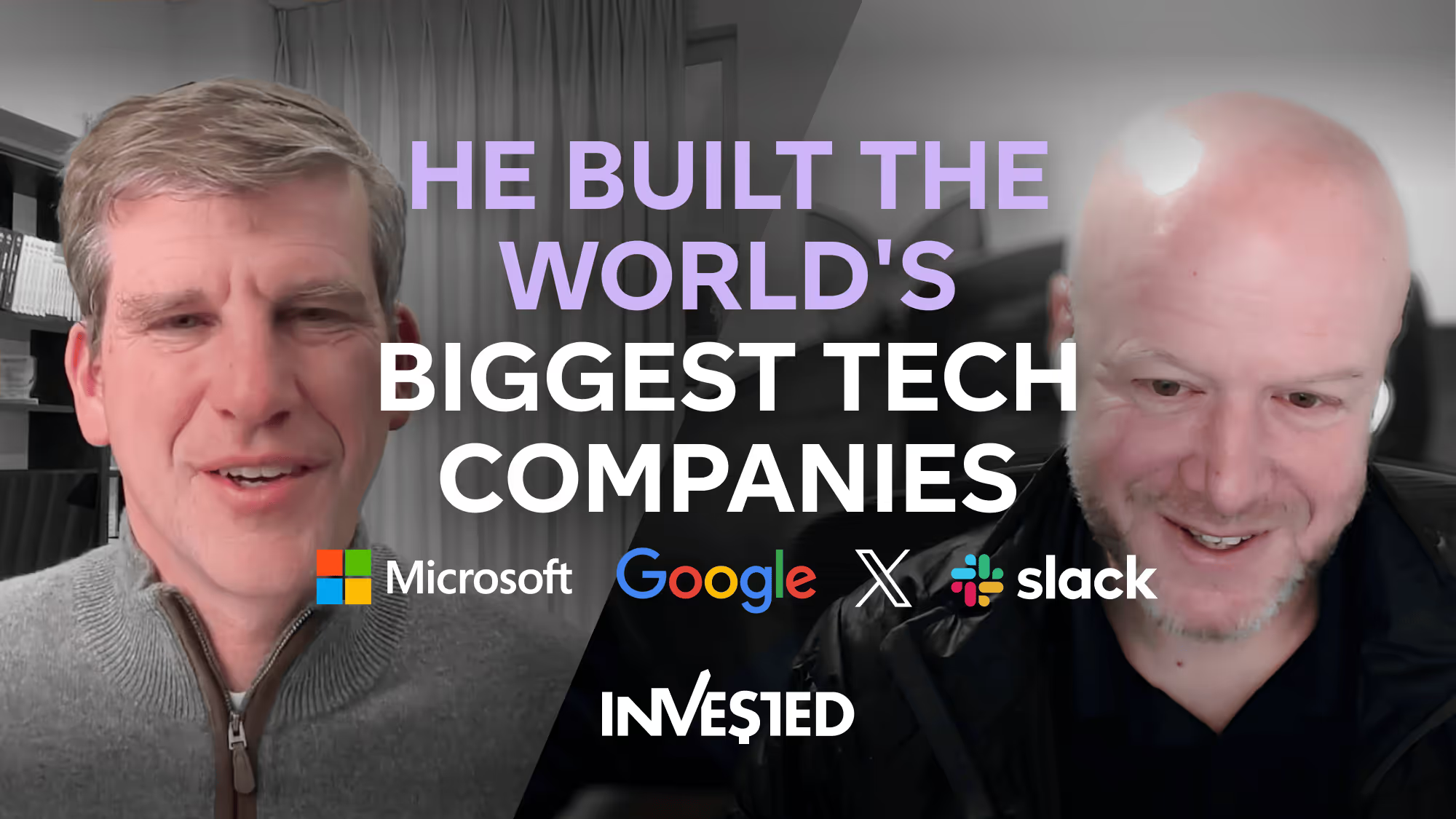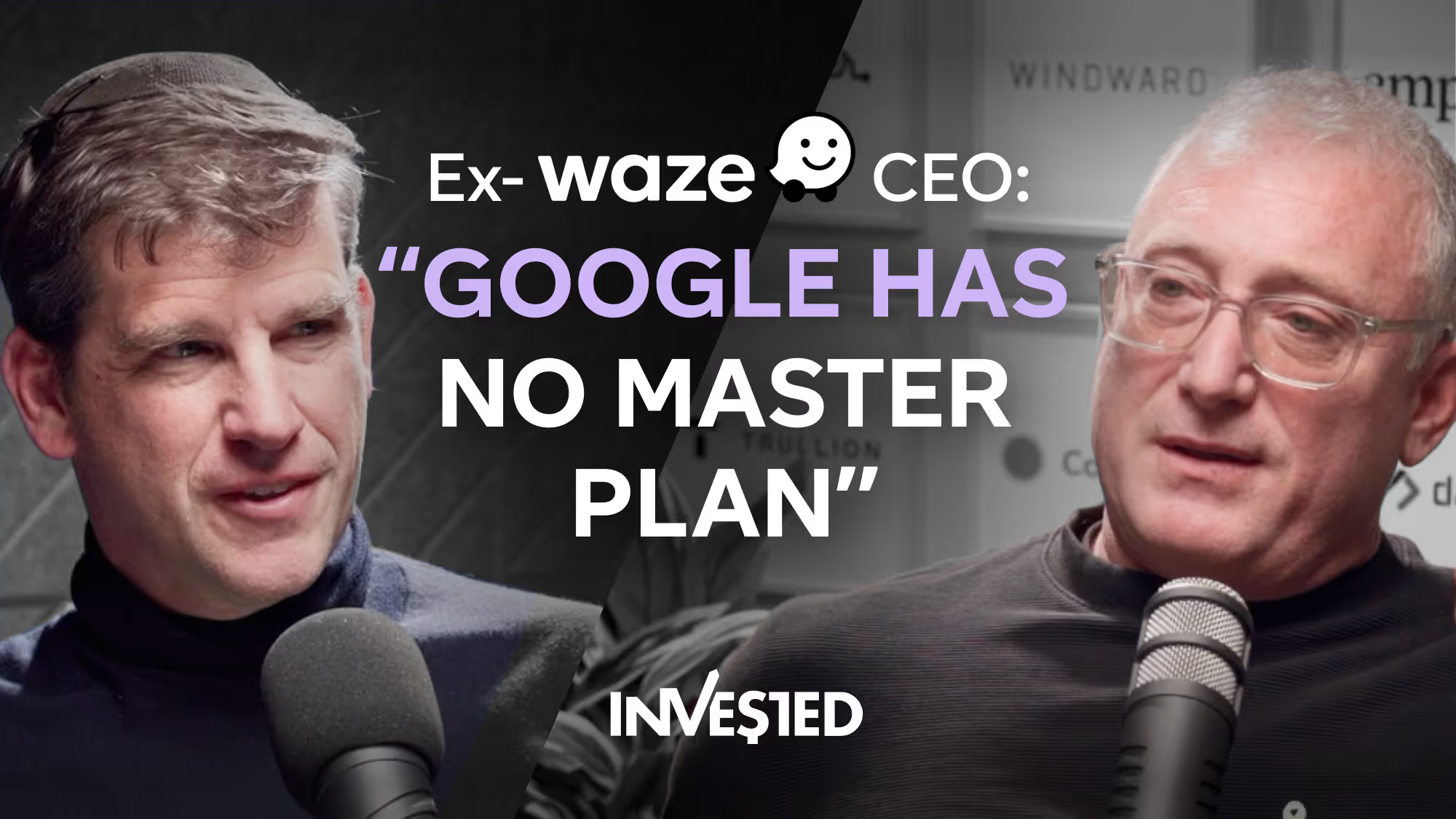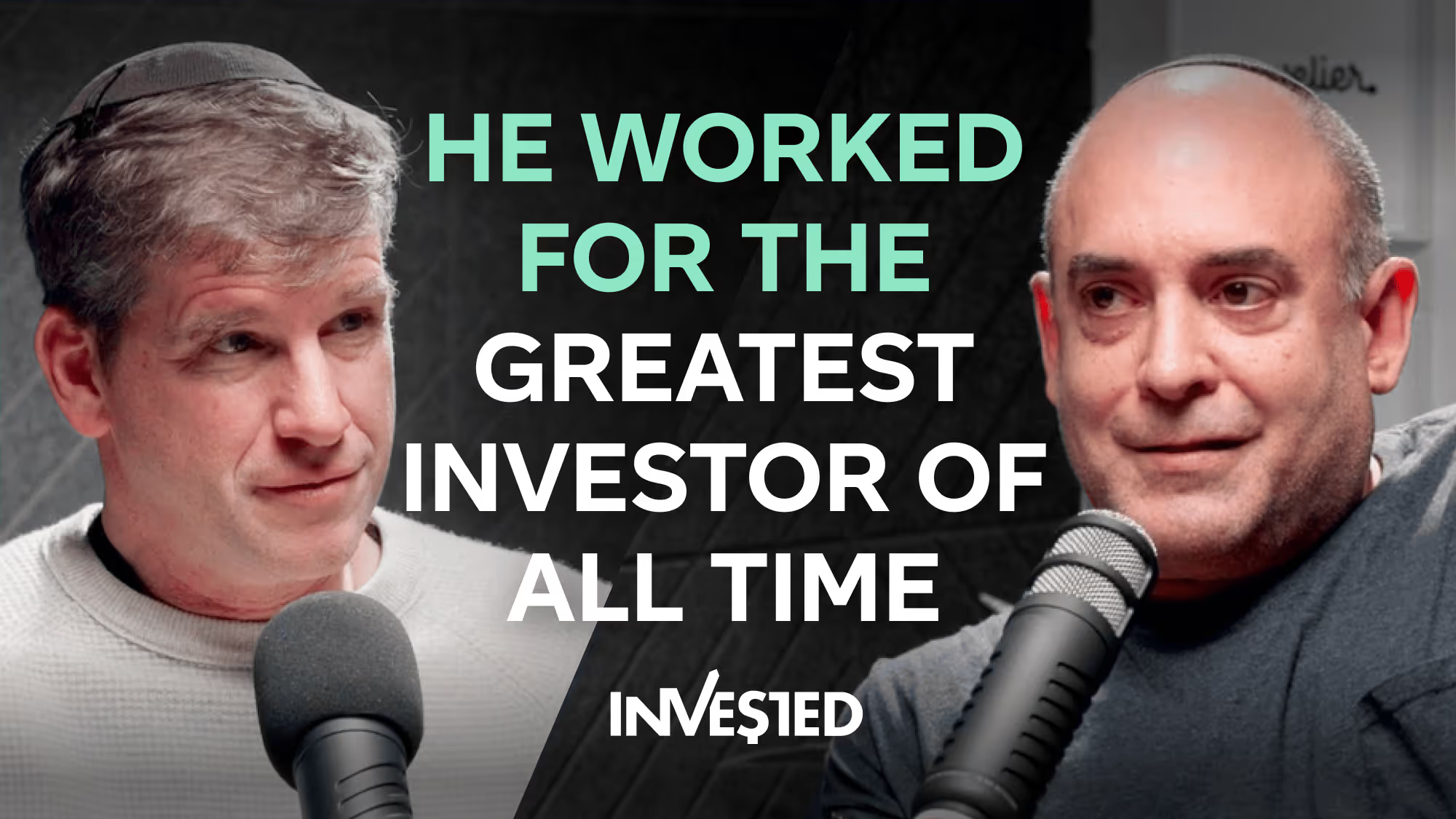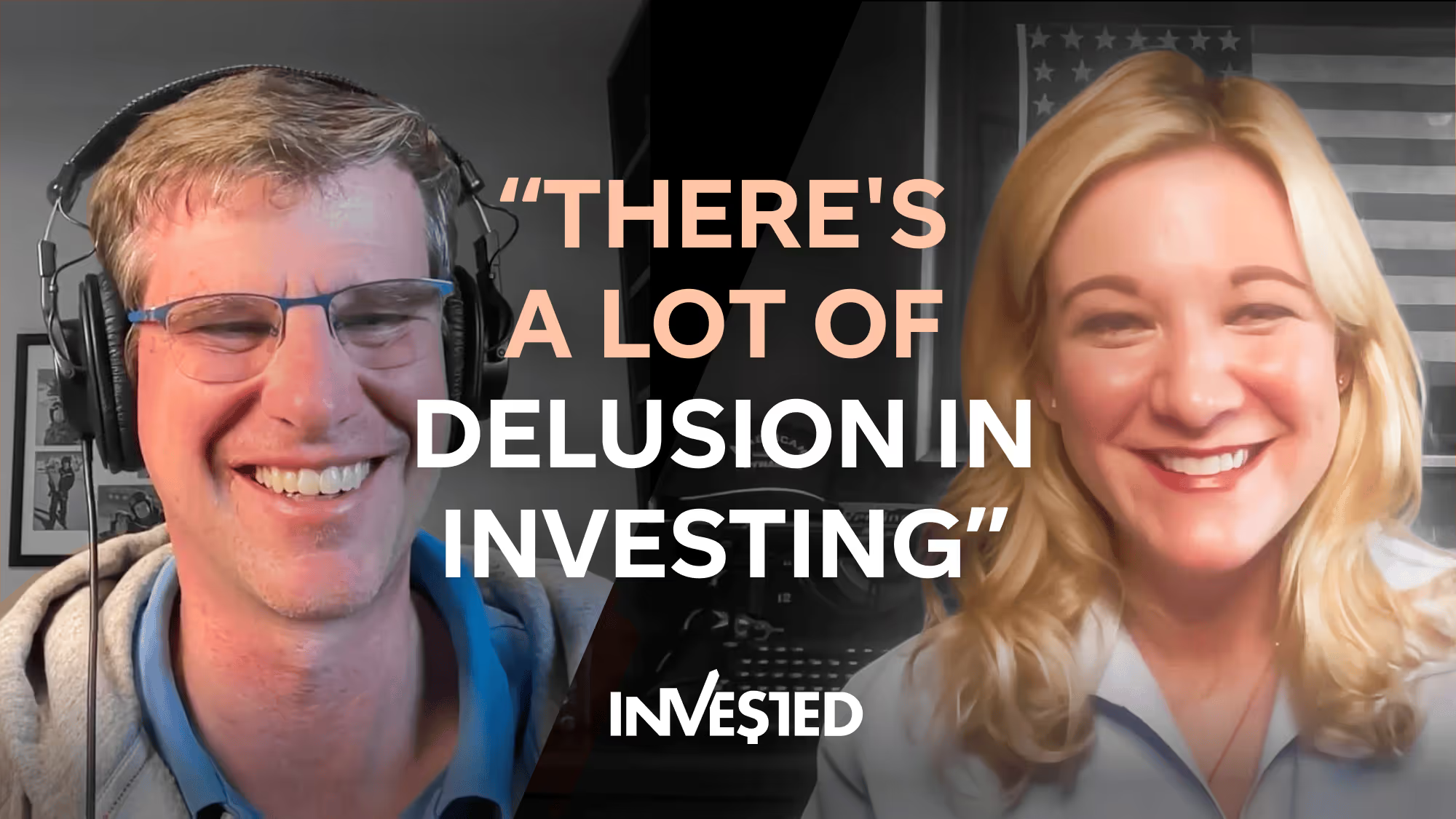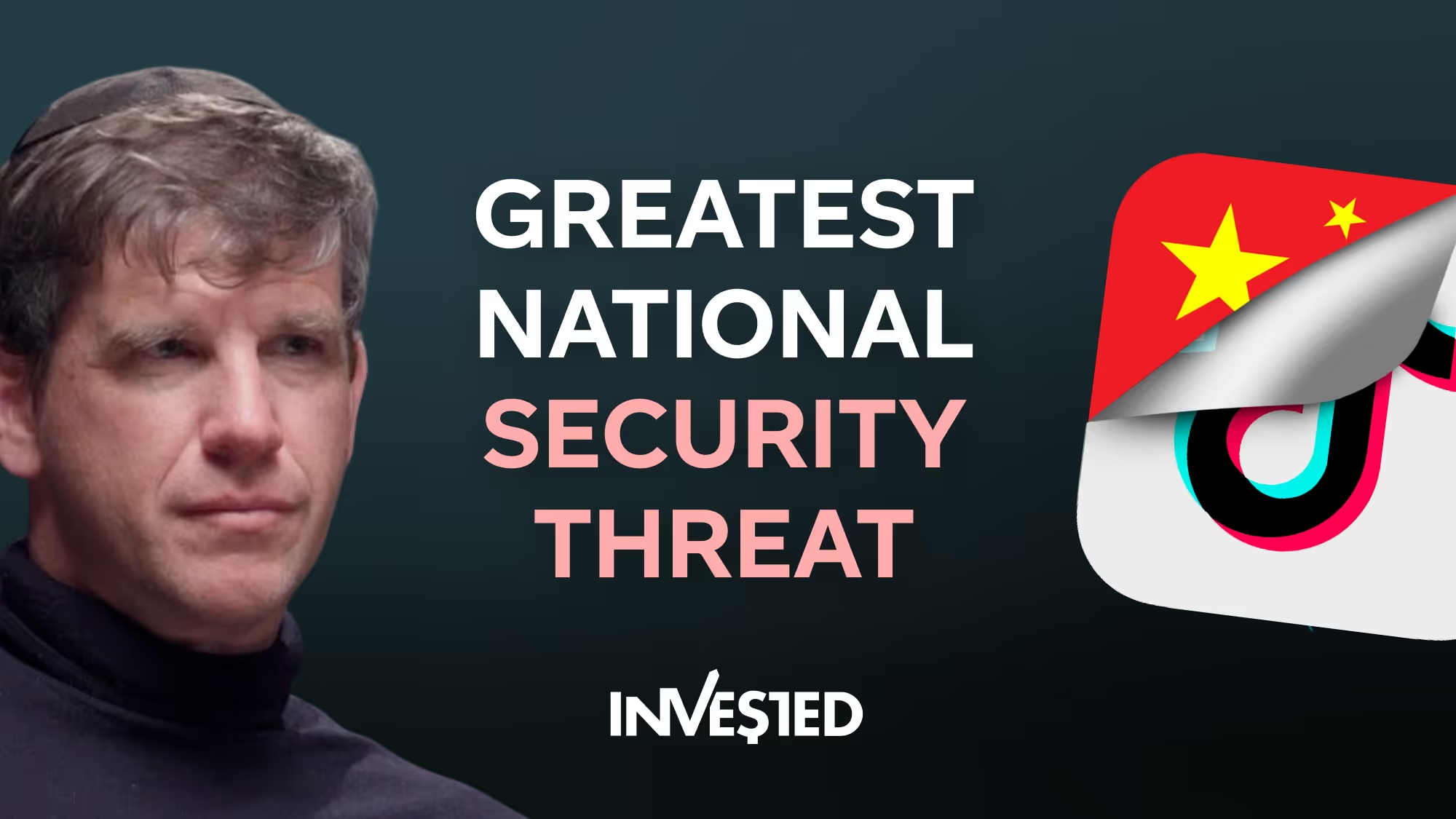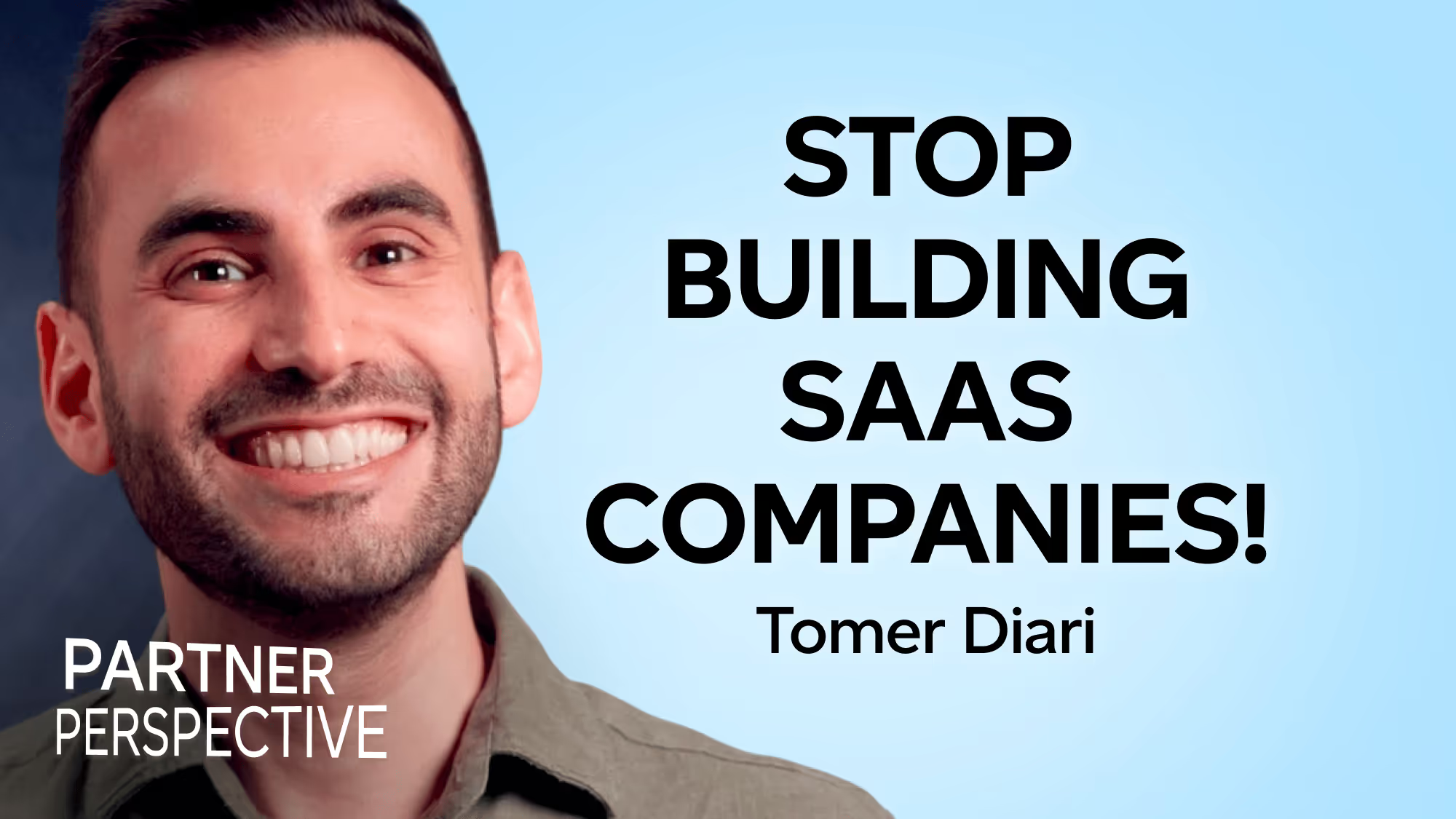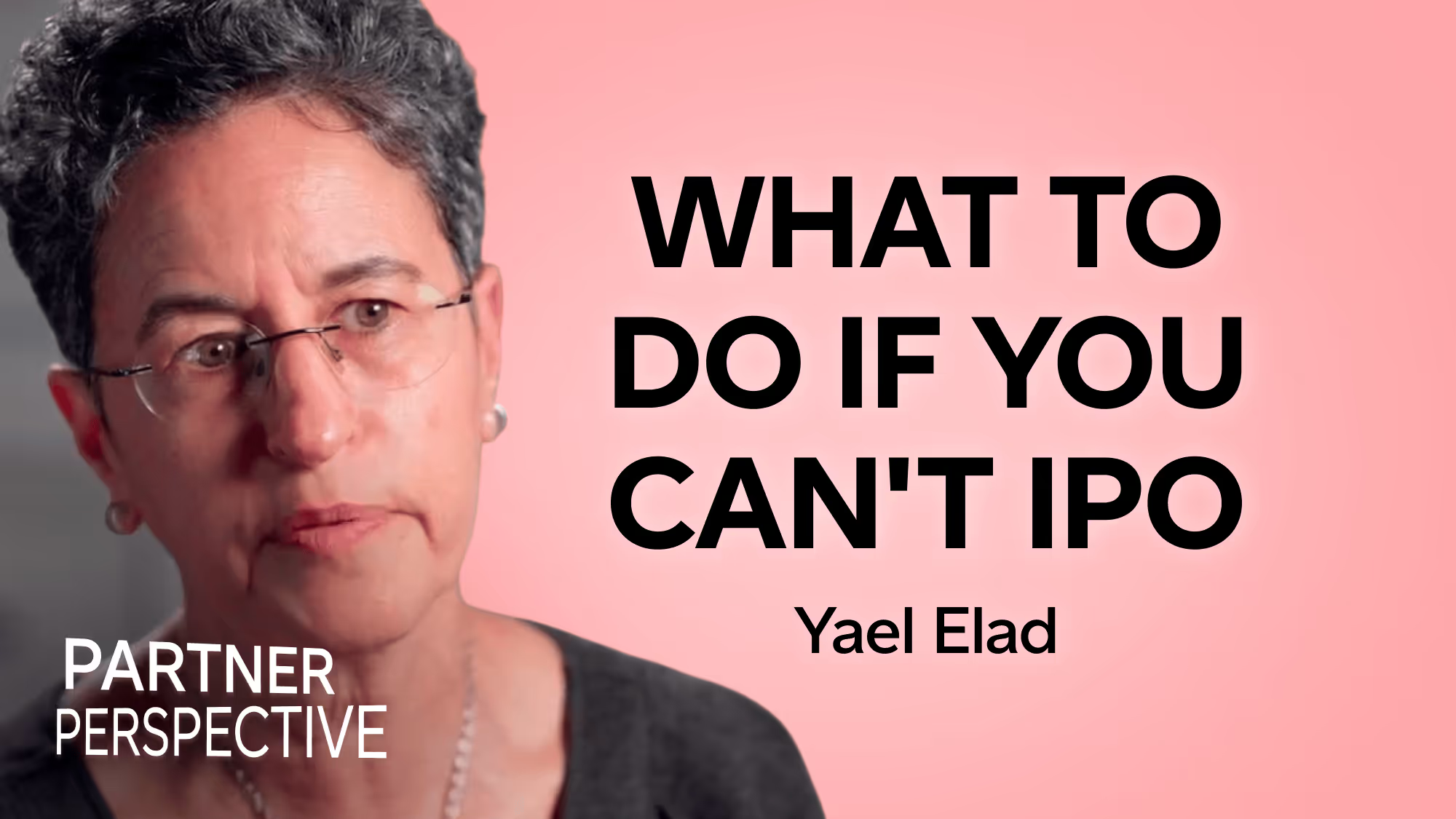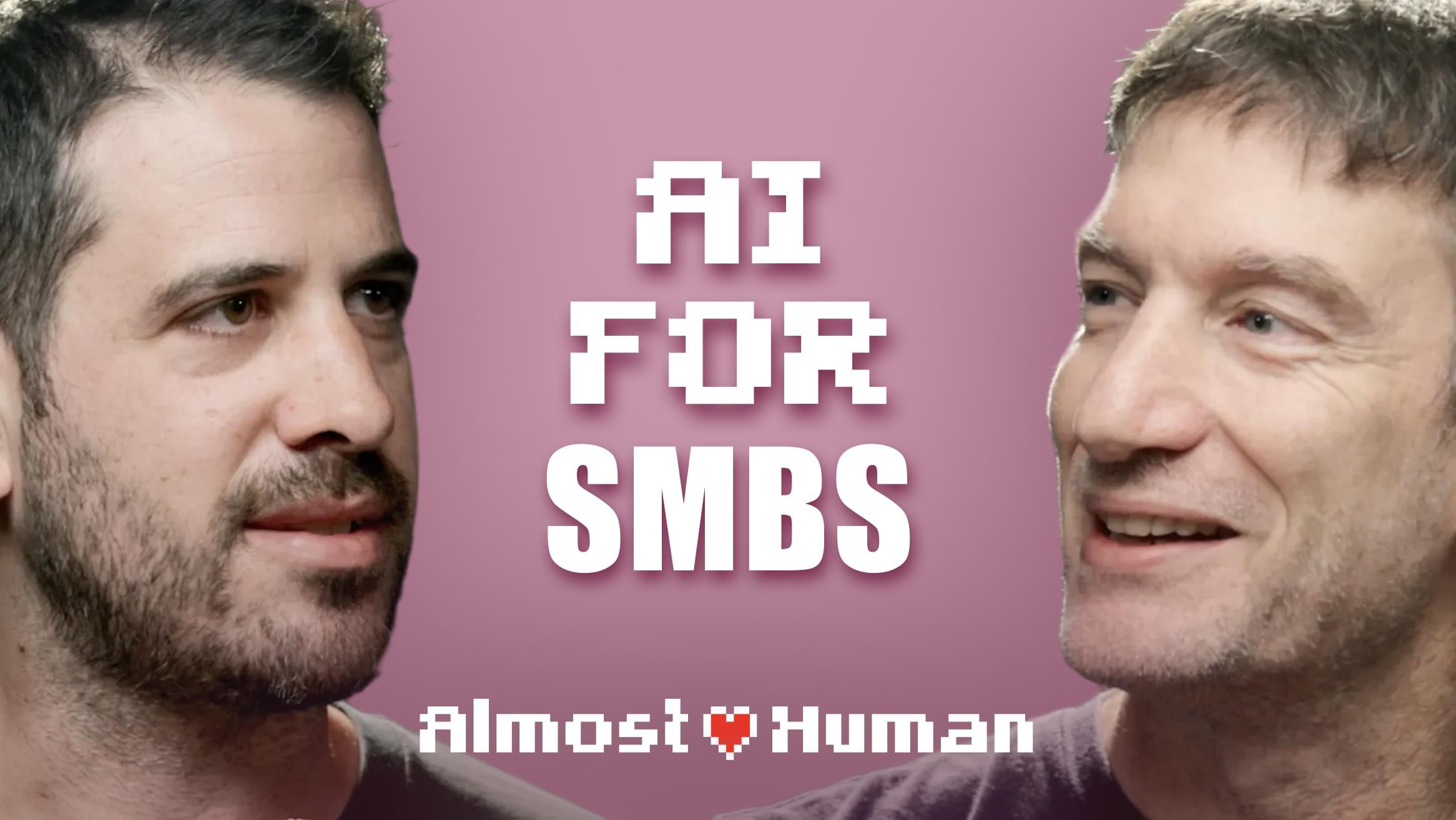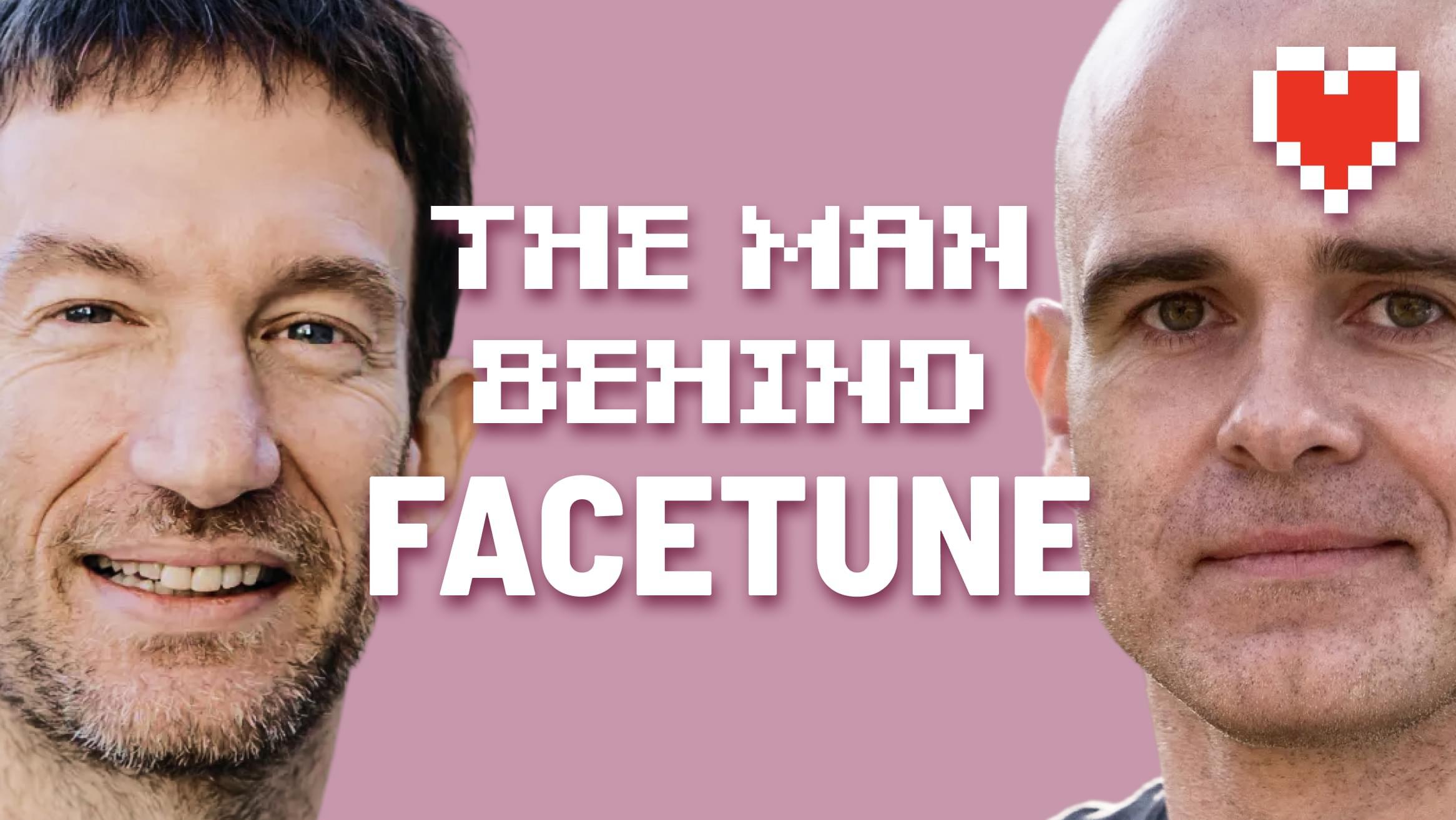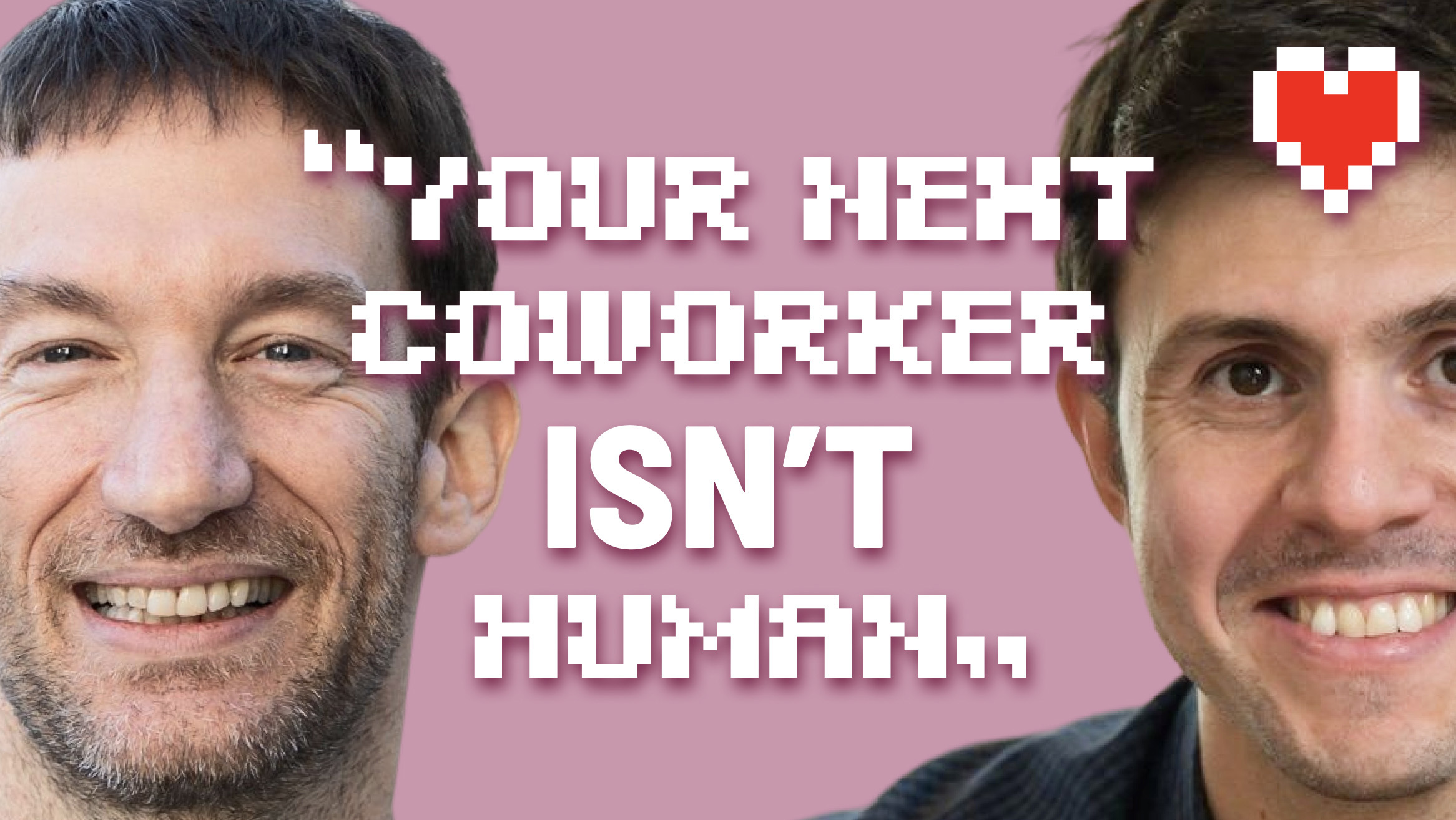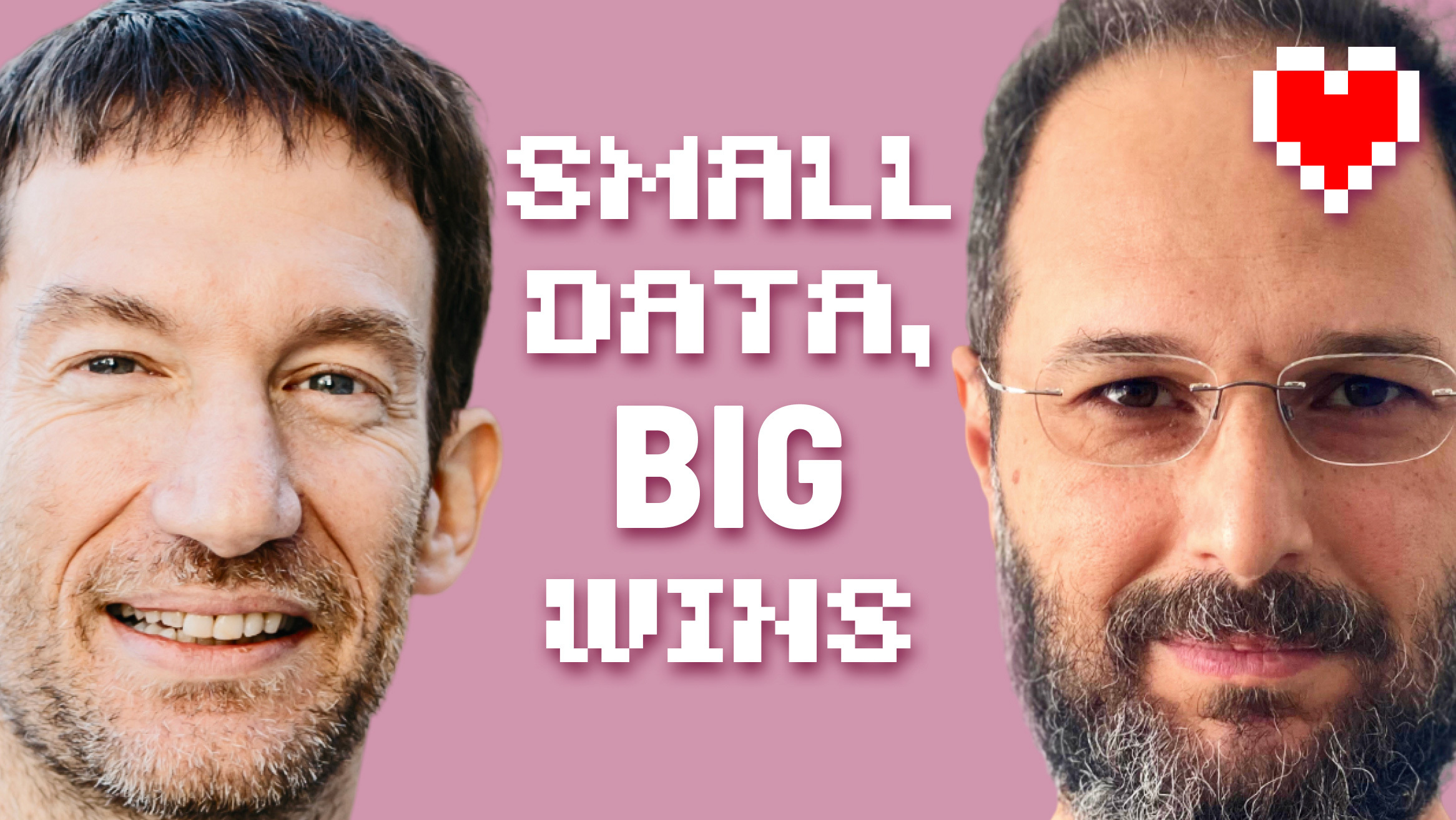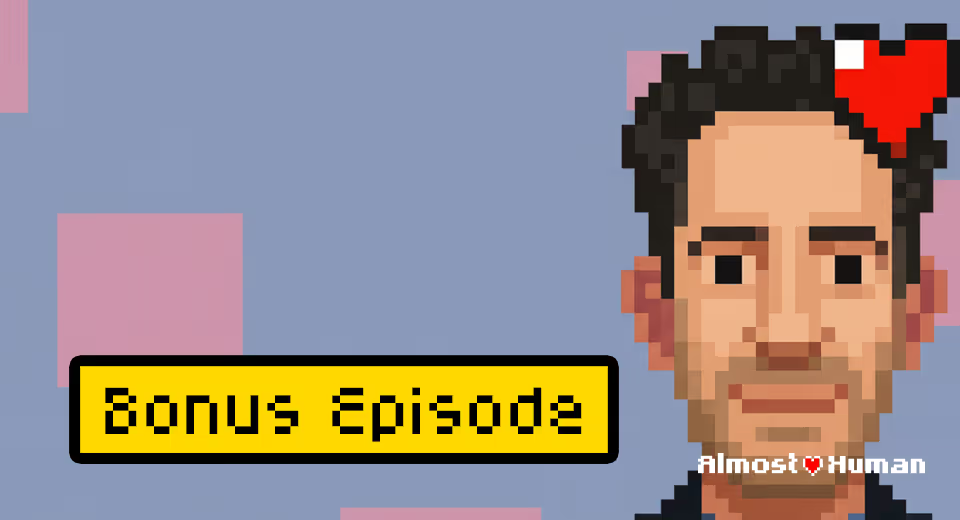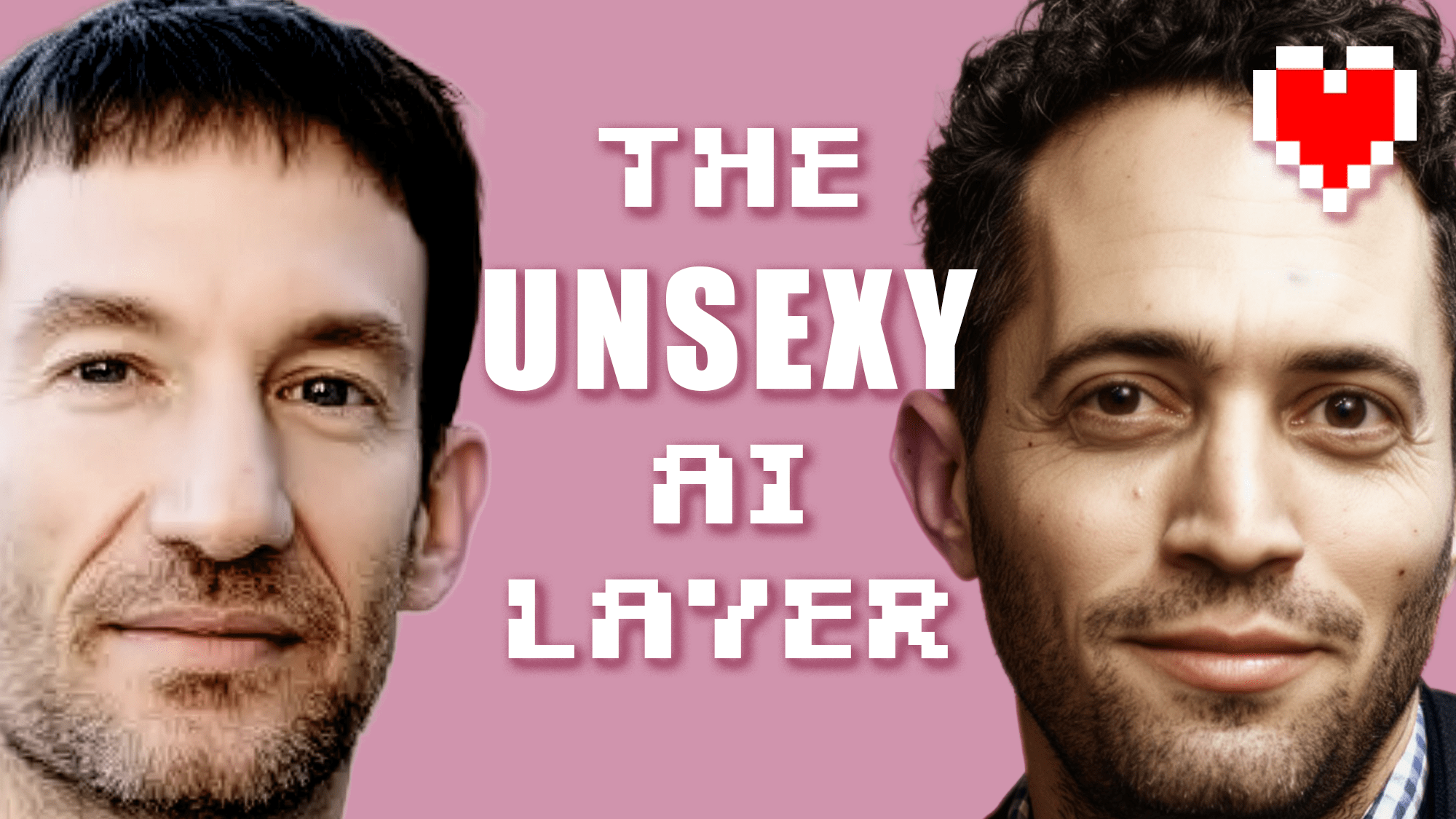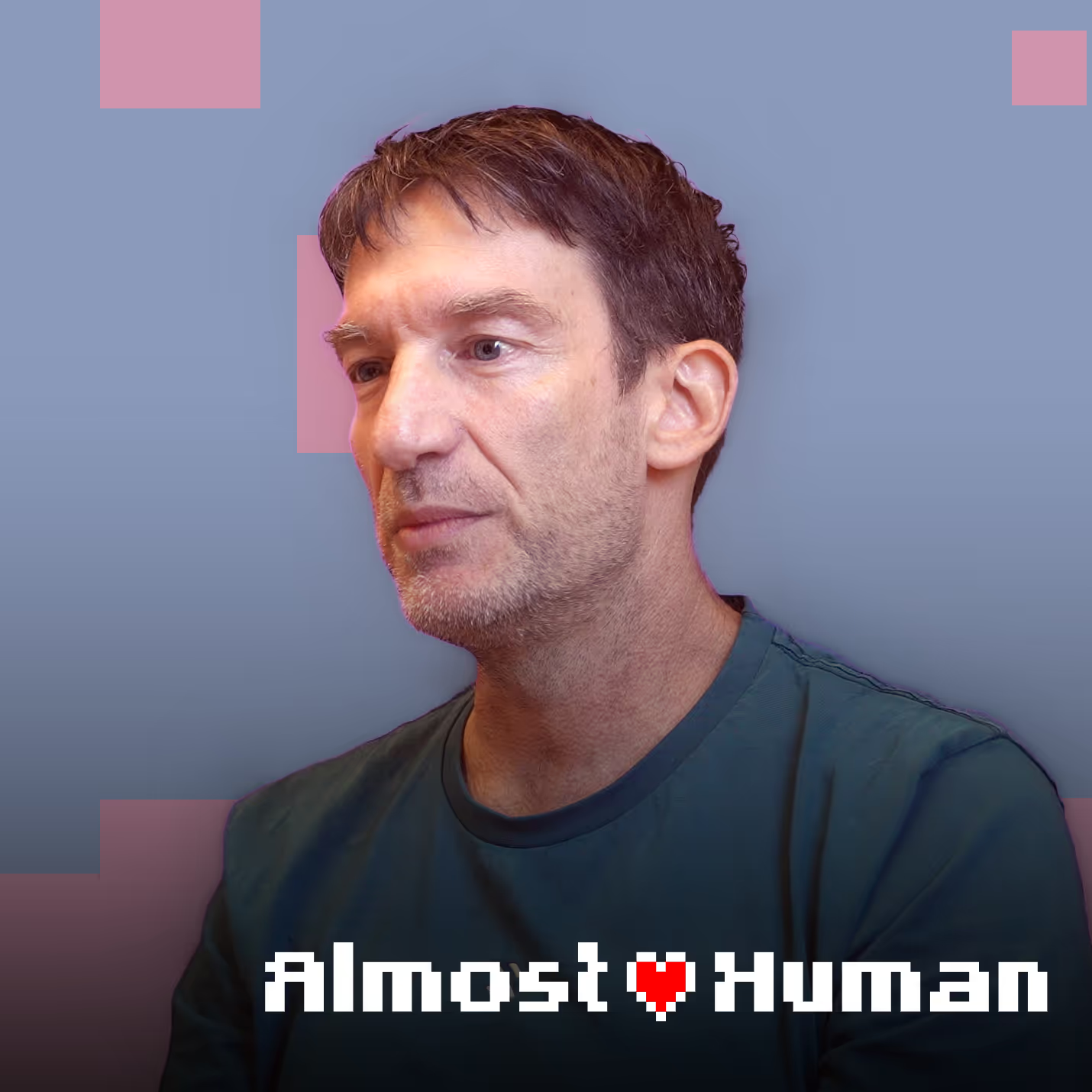Gavin Baker
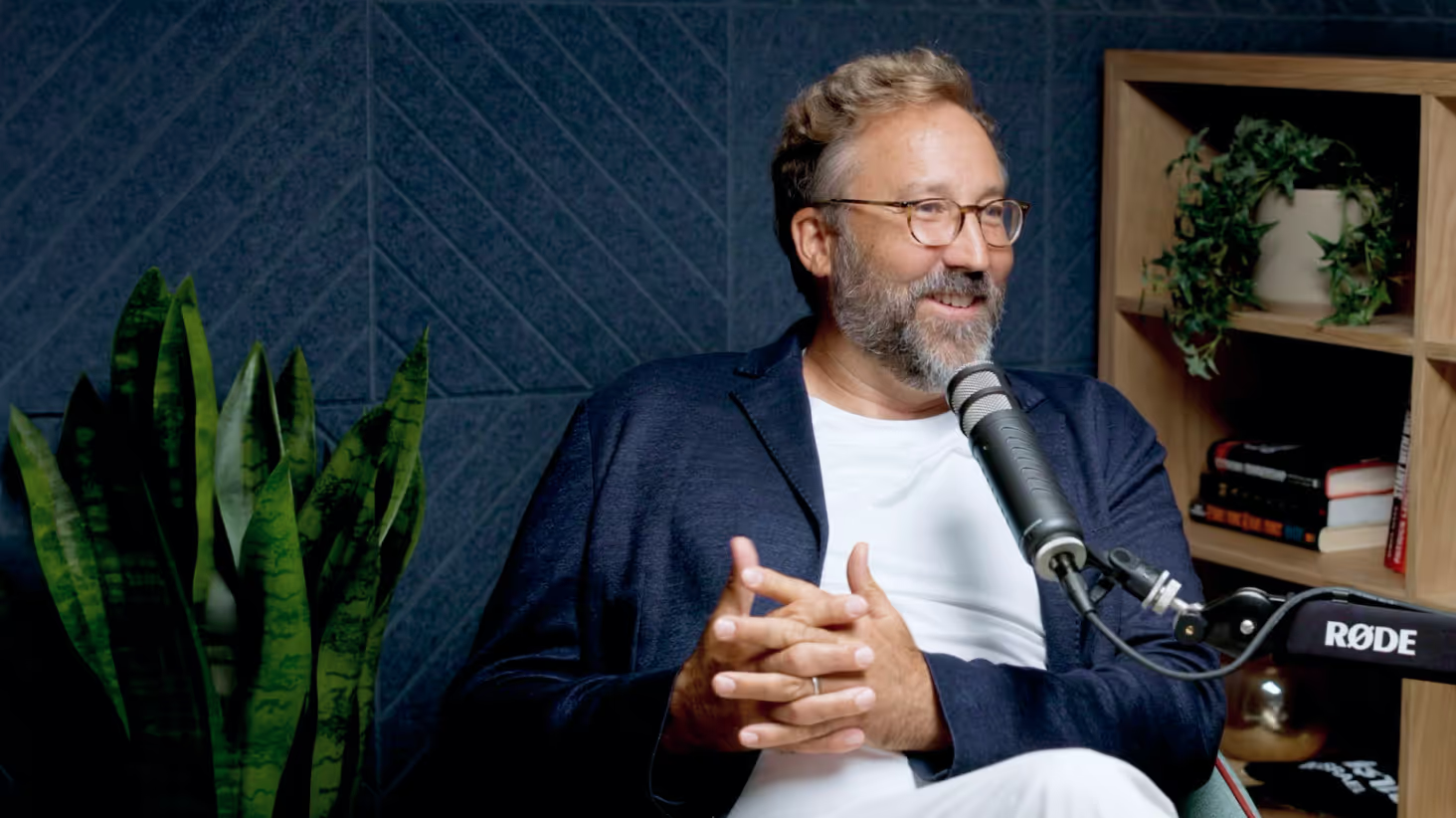


How can values create value? On this podcast, Michael Eisenberg talks with business leaders and venture capitalists to explore the values and purpose behind their businesses, the impact technology can have on humanity, and the humanity behind digitization.
Gavin Baker



How can values create value? On this podcast, Michael Eisenberg talks with business leaders and venture capitalists to explore the values and purpose behind their businesses, the impact technology can have on humanity, and the humanity behind digitization.
Gavin Baker
Gavin Baker
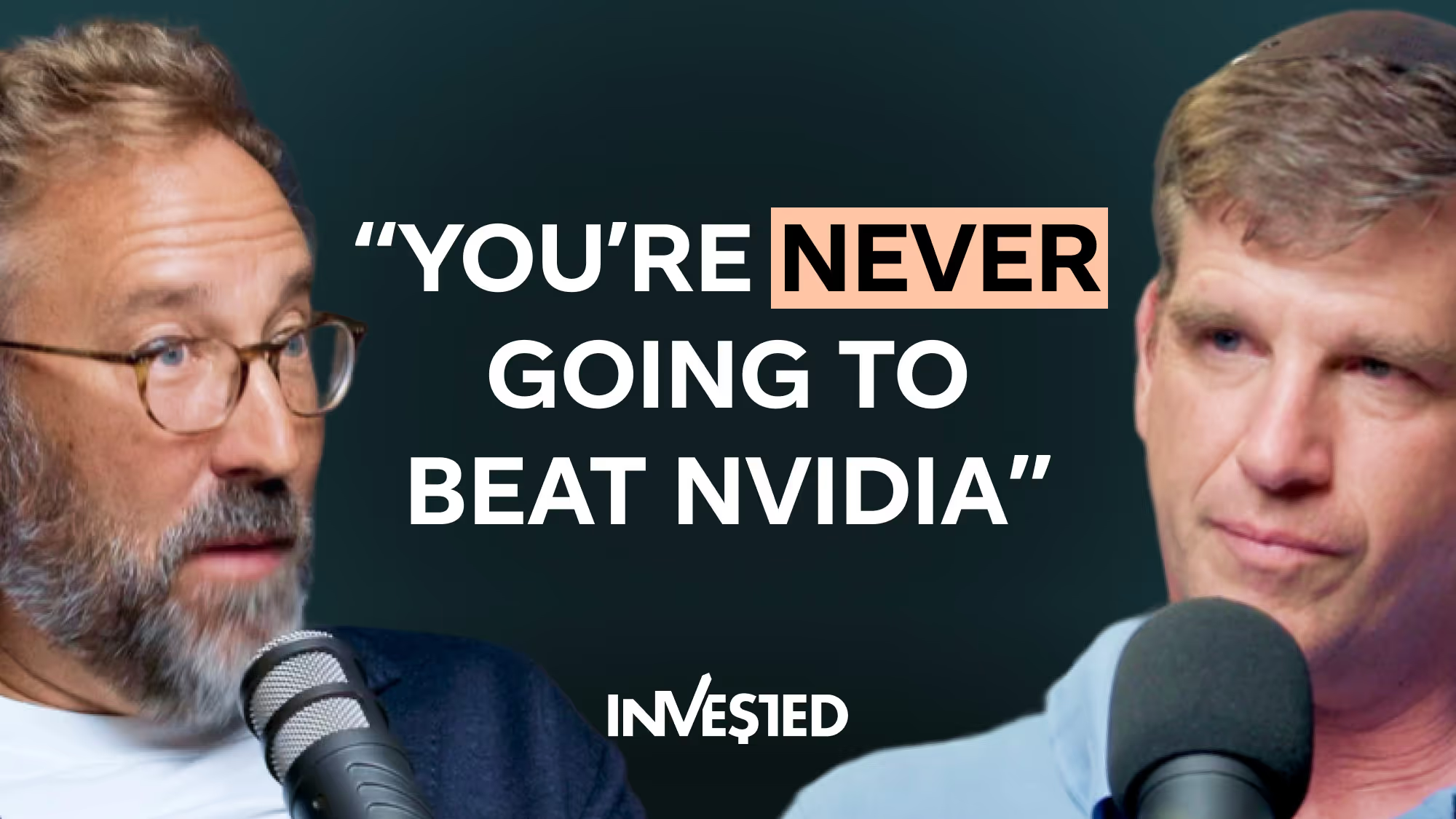
Gavin Baker
Gavin Baker
00:00 Intro
02:10 Foundation Models: From Fastest Appreciating to Depreciating Assets
05:46 The Trillion-Dollar AI Club: OpenAI, Anthropic & xAI
10:25 The “Free Agency” Talent War and Religious Belief in ASI
12:55 Weaponizing Capital and the $600 Billion GPU Question
16:30 The 30-Year “Overnight Success” of Nvidia
20:22 Cerebras, NextSilicon, and the Power of Picking Niches
23:49 TSMC, Intel, and the Semiconductor “Chocolate Cake” Problem
26:40 Why Taiwan Semi’s Lead May Be Stabilizing, Not Existential
30:48 ”Intel Made Two Crucial Errors”
32:42 When Washington Bought a Piece of Intel
37:00 Israel’s Role in the Allied Semiconductor Supply Chain
40:54 The New Semiconductor Cold War
47:11 Toward an “Allied Supply Chain” for Chips and AI
50:54 Why Gavin Says Global Warming is a Solved Problem
55:34 Mars, Neuralink, and the Next Human Frontier
01:00:19 Would You Always Bet on Elon Musk?
01:03:01 Mission-Driven Investing and Avoiding “Bad for the World” Bets
01:07:37 Why Tel Aviv Feels Like the Most Exciting City in the World
01:09:43 The Charlie Kirk Assassination and the Return of Political Violence
01:15:37 X Saved the Truth About October 7th
01:23:57 SpaceX, Starlink, and the Future of Human Ambition
On this episode of Invested, Michael sits down with Gavin Baker who is the Managing Partner and Chief Investment Officer of Atreides Management, LP. In addition to overseeing investments and research at Atreides, he is responsible for the firm’s day-to-day portfolio management. Prior to founding Atreides in 2019, Gavin was at Fidelity Investments from 1999 to 2017, most recently as the portfolio manager of the Fidelity OTC Portfolio from 2009 to 2017. He also helped spearhead Fidelity’s venture capital investing from 2013 to 2017. Prior to managing the Fidelity OTC Portfolio, he was a portfolio manager of the Fidelity Select Wireless Portfolio from 2007 to 2011, the Fidelity Select Telecommunications Portfolio from 2007 to 2009 and the Fidelity Select Pharmaceuticals Portfolio from 2002 to 2005. Gavin started his career at Fidelity as an analyst, and focused on semiconductors, pharmaceuticals, retail, consumer packaged goods and telecommunications. Gavin earned an AB in economics and history from Dartmouth College.
Please rate this episode 5 stars wherever you stream your podcasts!
Gavin Baker (00:00.608)
I think we will have artificial super intelligence in 10 years. And by that, I mean an AI that is smarter than the smartest human in every discipline.
Michael Eisenberg:
You are, I would argue, one of the world's premier experts on semiconductors and the semiconductor supply chain.
Gavin Baker:
Now you have the US government, who I'm sure in many, many ways is going to politely say, “Hey, we know that you like the chocolate cakes made in Taiwan more than the chocolate cakes made in Oregon and Arizona by Intel. We'd really like you to buy that American chocolate cake.”
In the UAE, and one thing that was profoundly embarrassing for me as an American to realize is that you might be safer being Jewish in Abu Dhabi than you are in most American cities.
I think the world's gonna run on sunlight. I'm a committed environmentalist. I love to be outdoors, but I genuinely believe global warming is a solved problem.
I profoundly believe if it were not for X, nobody would believe that October 7th really happened.
Michael Eisenberg:
I agree.
Michael Eisenberg (01:02.254)
I'm joined today by Gavin Baker, a long time friend and incredible investor at Atreides, and the most knowledgeable person on the semiconductor supply chain and the future of AI. You do not want to miss this episode. We also recorded this episode on the day after the assassination of Charlie Kirk. I want to hear Gavin's thoughts on the political implications of that, some of what's going on on social media and the mainstream media as well. Listen in.
Welcome back to another episode of Invested. I am thrilled to have my old friend, Gavin Baker. Welcome Gavin.
Gavin Baker:
Thank you, so glad to be here.
Michael Eisenberg (01:40.76)
Welcome to Tel Aviv. Gavin and I met in a strange situation. We both had our stomachs fall out on a plane that went from the Bay area to Las Vegas, that had a little drop in the middle of it. And we were talking about the stock market at the time, and that launched a real friendship along with our mutual friend, Bill Gurley. And it's been a wonderful relationship.
Gavin Baker:
It’s more than 10 years ago.
Michael Eisenberg (02:10.732)
And Gavin, for those who don't know, is just about the smartest guy in the semiconductor supply chain, and I think both the most astute and sometimes cynical observer of the world of AI we're going through right now. And so I adopted a line from you early on. We were at a conference together in Abu Dhabi, where you got up and said that foundation models are the fastest appreciating asset in history. Do you still think that's true?
Gavin Baker:
Well, I think that exact line was–well, first we should give credit to Bill's partner Eric Vishria, who I ruthlessly stole that line from. But I did modify it and say foundation models without access to unique data and internet scale distribution are the fastest depreciating assets in history. I would say my opinion has changed a little bit, and I do think xAI, Anthropic OpenAI, DeepMind–they've opened up a lead, and to varying degrees they all have, with probably Google and xAI having the most unique data. I think Anthropic very smartly focused on code early, and then OpenAI got to internet-scale distribution just because they were there first.
But I do think fundamentally reasoning models have made the business of foundation models dramatically better. And the reason is, is that for every trillion-dollar plus internet company,
Michael Eisenberg:
I love that throwaway–”For every trillion dollar plus internet company,” like this happened every day two years ago! No.
Gavin Baker (03:43.306)
100%. For every dominant internet company, there's the same flywheel that underpins it. And that flywheel is that as the product gets better, you get more users. The users create more data. The incremental data makes the product better, which attracts more users. And that flywheel spins at Google every day in the search business, Netflix every day, and Amazon every day in the recommendation engines, at Facebook every day, both in their ad targeting algorithm and the algorithm they use to select what content to show you.
That loop was not present at all in foundation model companies, LLMs, until very recently. And so the reason that LLMs with unique data had an advantage was one that would presumably lead to over time an advantage in training, if you could train on data that no one else could.
And then secondarily, if you had access to something like X, or everything Google knows about the world, you can use that to ground the LLM's answers more firmly in reality. But reasoning fundamentally changed this, with the introduction of reinforcement learning with verifiable rewards during post-training, and test time compute. All of a sudden, having a giant user base becomes a big advantage and feeds back into the quality of the product in a way that was simply not present until OpenAI came out with o1 in late ‘24, DeepSeek quickly followed with R1, and then xAI, Google DeepMind, and Anthropic quickly followed with their own reasoning models. So I think that these scaled foundation model companies are much better investments post-reasoning, because this flywheel, where the more users you have, the more data you have, the better the product it is, now exists in AI where it simply did not exist before, at least for LLMs.
Michael Eisenberg (05:46.85)
When you say it's a better investment, I go back to the comment you said before about these trillion dollar companies, right? And I think it was, you know, what do we got? Nvidia, Apple, Meta, Microsoft, Google. Am I missing anyone?
Gavin Baker:
Broadcom now.
Michael Eisenberg (06:13.774)
Broadcom. It's all kind of become a club, the trillion dollar club. And you look at these, Anthropic, OpenAI and you go, “Oh, those are obviously gonna be trillion dollar companies.” I sat today with somebody, by the way, two people who told me they put up over $100 million in the recent Anthropic round. And I said, “Boy, betting on the trillion dollar outcome!” I stopped myself for a second, and said, “Betting on the trillion dollar outcome? I've been doing this 30 years, there haven't been that many of those!”
Gavin Baker:
Yeah. Well, I will just say, I do think it's been fascinating to see Grok Code release and take overwhelmingly dominant share of the coding tokens on OpenRouter. Grok Code is a great product. But yeah, these are big numbers, but it's just funny–Anthropic, what was that? 180 billion? I mean, they went from 1 billion to 6 billion faster than any company in history in essentially six months.
So all of a sudden you're 30 times current month's revenue. I think there are real corporate structure concerns there. Like in 2018, when the governing documents were written in Microsoft made its investment, people thought AGI was a fantasy. And as soon as AGI is declared, all of the future of that technology and future technology from OpenAI goes to the nonprofit. But nonetheless, I mean, OpenAI has 10 plus billion dollars revenue.
xAI, it's not public, but they're scaling rapidly. So these companies, now all of a sudden you can value them on revenue multiples. Now that you have that core product loop driven by reasoning in place, I think it's pretty clear that it's going to be an oligopoly that's going to be tough to break into. But I think maybe the heart of your question is to what degree is this a sustaining or disruptive innovation for the existing trillion dollar plus companies?
I think the answer has to be, I mean, not to be clever or avoid the question, is, it's both. So I think maybe in a prior interaction, I said, you know, pre-AI, each one of these mega cap tech companies was kind of in its own swim lane. Like Netflix, they competed a little bit with Amazon and Google and Apple, but you know, Netflix was pretty dominant. Google, dominant in search. Meta, dominant in social. Microsoft, dominant in productivity.
And then you have this cloud computing oligopoly of Google, Microsoft and Amazon. And you know, nobody's really competing with Amazon and e-commerce. Post LLMs, post transformers, at some level they're now all in the same race. Because I think it's very clear that the transformer is going to be able to do essentially everything that lies at the core of each of those companies. You're going to be able to make personalized movies, personalized songs. You're going to have an agent that can do all of your shopping. You know, the fulfillment infrastructure will still be valuable. They can obviously do search.
And then, I think, it's an open question. What is the value of human created content in a world where AI can create perfect content that looks like it's from humans? And so, you know, they're kind of all in the same game, but at the same time, the core ingredients to success are compute and data, and these companies have the most compute and the most data. So while it's very disruptive and very scary, it's also sustaining in that it plays to some of their advantages, if you can attract the right talent. Google was able to do that. Amazon, not really in the game, but they bet on Anthropic, which for sure has the right talent. xAI has been able to do that, but Apple has not even tried, and Meta has, until now, essentially failed. We'll see if, you know, V3 or V4 of the strategy works.
MIchael Eisenberg:
The free agency market works.
Gavin Baker (10:25.592)
The free agency market. You know, it’s just very funny. Like, I worked for a long time at a large financial institution. And I think most big companies eventually learn that it's pretty hard. You have a culture of growing your own talent to bring in expensive external talent, because it really disenfranchises and upsets the loyal internal employees. And you have for sure seen that at Meta. They have a lot of advantages, but it's also the free agency market, kind of the fight of their lives. And that's why I do think they're all, they're in a prisoner's dilemma, where the amount of Capex is going to an unimaginable place. I think you could see some of these companies first issue debt, then cancel their dividends, then stop the buybacks, because they all feel that winning in LLMs is existential. And they feel like the prize on the other side is artificial super intelligence, which they all have a near religious belief is gonna create tens of trillions of dollars of economic value.
Michael Eisenberg:
Near-religious or fully religious belief?
Gavin Baker (12:06.828)
Maybe somewhere in between. I mean, you know, the current trajectory, I think is supportive of getting to artificial super intelligence. But I think one of the most interesting parts of all of this is we don't know what the economic returns to super intelligence will be, definitionally, because we have never seen it. And if humans, we have pushed the limits with people like Albert Einstein or whoever else, pushed the limits of the natural laws of the universe–if we pushed the limits of physics, and biology, and chemistry and the math that underpins all of it, then the economic returns to superintelligence, they may not be that high.
On the other hand, if we haven't, and superintelligences are curing cancer, inventing warp drives, and we're colonizing multiple solar systems, the returns to superintelligence are going to be really high, but it's very unknowable. So I would say there's a quasi-religious belief that we're going to get to superintelligence that I think is well-founded in data, but economic returns to that superintelligence is, to me, definitionally unknowable. And that is where I think there is, you know, for sure, religious belief.
Michael Eisenberg:
One of the things I keep looking at is, you go up in the venture business in the year 2000, and then again in the late teens and early twenties of this century, you know, came Masa from SoftBank and he weaponized capital.
Gavin Baker:
He tried to weaponize it.
Michael Eisenberg (12:55.286)
Tried to weaponize capital. When you weaponize capital, you end up with this fight to the death like between Uber and Lyft for a while, until Uber won it. But they really won it in the private markets. You know, they raised untoward amounts of capital in the private markets to do it.
Now we're in this incredible race where you've got multiple public companies chasing the same bacon. Kosher bacon, of course, but chasing the same bacon. And a couple of private companies doing the same thing. And they're all fighting over what's, I guess, notionally the same prize. Yes, Anthropic kind of specializes in code, and OpenAI is the consumer. But foundationally, they're after the same prize. How does that end? And to your point with all this religious belief, they're gonna raise hundreds of billions of dollars maybe, if we believe OpenAI's deck, which I'm not sure I do, to get to this. And has that ended in a return?
Gavin Baker;
Well, so to date, there has actually been a storied venture capital firm whose name we will not mention on this podcast, a storied American venture capital firm. One of their partners wrote an essay called the $200 Billion Question and Then the $600 Billion Question. And the point of the essay was, the first $200 billion question is, where's the economic return on this $200 billion in GPU spend going to be? And then, where's the return on the $600 billion? And the funny thing to me about that, sometimes I think VCs, they're very in their own world of venture. The funny thing to me about that was, all of the biggest spenders on GPUs, with the exception of xAI, are public companies. And public companies report something called quarterly financials, and they file a document called a 10Q, which has to be accurate.
And you can use those documents to calculate something called a return on invested capital. It's really easy to do. And to date, the ROI on all of this spending has been strongly positive. And some of that, you could argue, was that they got religion about expenses at around the same time. But in a world of AI, fundamentally, the economic return, a lot of it will come from either replacing or augmenting layman's with GPUs.
Michael Eisenberg (14:52.886)
Labor replacement.
Gavin Baker:
Or augmentation, we will see. But the maximalists, I think for sure would say labor replacement. So I think that's a fair way to calculate it. And then I would just say it's become really clear over the last six months in particular, you've started to see big accelerations in the top line. And a lot of that has been in using LLMs, and AI and GPUs to improve the recommender AI algorithms that power a lot of these companies.
But nonetheless, the returns have been good, but just the question is the quantum of spin with Blackwell, which is the next generation Nvidia GPU, is so big–these 50 to $100 billion data centers–will the ROI continue to be good? So while the answer to the $200 billion question was yes, the ROI was awesome, the answer to the $600 billion question was yes, the ROI has been awesome.
Now we're at the trillion-dollar question, and the ROI has actually still been good. We're rapidly heading for two to three trillion, and will the ROI continue to be good? Unknown. And if it's not, do economics dictate, or does the prisoner's dilemma dictate, and the companies could keep spending.
Michael Eisenberg:
That is a great question. I want to think, you are, I would argue, one of the world's premier experts on semiconductors and the semiconductor supply chain, and understand this incredibly deeply. So the dominant architecture today is the GPU. Does that continue?
Gavin Baker (16:30.124)
I think it's going to be very hard to unseat GPUs in general, and, I would say, Nvidia in particular. I think the two most exceptional CEOs I've ever had the privilege of investing in are Jensen and Elon. When I was a very young man at Fidelity, six months into being a semiconductor analyst, Nvidia was my best idea. It was maybe a $2 billion market cap. So Fidelity owned 15% of Nvidia, and I had the privilege as a very young man speaking to Jensen, essentially, an hour or two every week as a large shareholder. Then a little bit later in 2012, the fund I managed became the largest shareholder of Tesla at a small market cap, but they're exceptional, exceptional CEOs. And Jensen is super on his game, super dialed in.
It's a big advantage to be as close to all of the labs as he is. But I think the issue is that Nvidia's market cap today is, I'm going to say…is it 4 trillion or? I'm going to say it's 4 trillion. It's 4 trillion, 4 and a half trillion. Let's just say that the GPU market cap–4.3 trillion, amazing. The GPU market cap, maybe if you look out three or four years, or we’ll call it accelerator market cap, is 10 trillion. And at that point, I do think you start to see niches develop. And so you're never going to beat Nvidia in a head-on assault. And particularly when you have AMD, who's an exceptional company, making pretty good chips, maybe lacking some of the systems and software that Nvidia has, but it's gonna be very hard to out Nvidia Nvidia. And that is what I think a lot of the internal ASIC programs at these hyperscalers are trying to do. I think that's kind of a fool's errand. It took the TPU three generations to be successful. I think for sure the best Silicon team at any hyperscaler is the AWS team. And I think it will really take,second and a half generation of training and maybe the third.for that to be amazing, for sure those are going to be successful ASIC programs.
Michael Eisenberg: (18:52.482)
I think a bunch of them are here on the Amazon team.
Gavin Baker:
Absolutely. It comes from Annapurna, Billie and Nafea Bshara. So that's an incredible team. But I think everybody else is going to struggle to out-GPU the GPU. But then, if you can pick a niche, because at some level, all designs are about trade-offs. Like in tank warfare, they talk about the iron triangle. You have to make a trade-off between offense, defense and mobility.
And because everybody is dealing with the same raw materials, the stronger you make the defense, the less mobile it is, because the more the tank weighs. And so you have to make trade-offs, and it's the same thing in semiconductors. And so as these niches become so big, I think there is an opportunity to make trade-offs that are different from what the GPU is doing, to do something different. And then you can maybe start with a niche that's 0.5%, but that's billions in revenue, and tens of billions in market value. And then you can go from there. And so recently you started to see–my firm, I should say, is an investor in Cerebris and Cerebris and Grok and I think a couple of others have an S-Tram architecture, and that can do something fundamentally different from a GPU chip.
Michael Eisenberg:
On a big chip.
Gavin Baker (20:22.958)
Cerebras in particular. Cerebras did something very radical. Instead of cutting up a 300 millimeter wafer into lots of little die and making that the basis for a chip, they use the whole wafer. It's a really radical approach, and it was really hard for them. It took them their third generation of their chip before they saw success. But now they, and Grok, GiroQ who was another Sram company, maybe a less radical approach–but I think they're both seeing real commercial traction because they can do something different and that they can generate extremely high throughput on tokens. So tokens per second really matters. If any of you use a reasoning model, you know, when it's thinking, it's literally generating tokens. And depending on who you use, you can kind of see its chain of thought. And an answer that might take 30 seconds takes three seconds on Cerebras. So that's a niche. NextSilicon.
Michael Eisenberg:
Mutual investment of ours.
Gavin Baker:
Mutual investment of ours. They're also doing something fundamentally different. I don't know how much is public about NextSilicon, but they're doing something different. And I saw a lot and I could–pick a niche. Pick a niche. And I think it's a truism that in a lot of semiconductors, it takes three generations to really, really be successful.
Michael Eisenberg:
Three generations, just to be clear to everyone, three generations of tape outs, you need the third generation chip and you finally make it. People don't remember that Nvidia is a 30-year overnight success. Nobody realizes, it's a 30-year overnight success. $4.3 trillion did not come to Jensen overnight. It was 30 years of a life's mission.
Gavin Baker (22:04.014)
Absolutely. And just in case, each chip is kind of like a two- to three-year cycle, and it's really hard. Tape the chip out. You send off this big digital file to Taiwan Semi in Taiwan. You anxiously wait for three or four months while they make the chip.
Michael Eisenberg:
Is there a way to speed up that process? I mean, we're speeding up everything. It's unbelievable.
Gavin Baker:
No, I do think it's very interesting. Tesla has made this giant partnership with Samsung in Texas. And one of the conditions of that partnership was that Elon would be able to have influence over the design of the fab and the way it's laid out. And in the same way he kind of reconceptualized electric vehicles, and then rockets, and then data centers from scratch, I think it's very underappreciated that the consensus belief of essentially every AI architect, data center architect was with the Hopper generation. You could not get more than 30,000 coherent in the training cluster. You know, he looked at the data center from first principles, did something very different and got 200,000 coherent. He's going to look at semiconductor manufacturing from first principles. So I actually think that something interesting may come of that. But no, it's kind of wild to make one little semiconductor, you know, which in the case of a GPU is not that small.
GPU is what's called a full radical chip, and now it's two of them. Think of it as being about half the size of an iPhone. That takes four months to make it. And then you get the chip back, and it's, you know, an incredibly anxious moment. You literally plug it in and you hope it works. It's called ‘power on.’ And sometimes it doesn't. And then you have to make some tweaks or if you really screwed up, you have to start again. So, I don't know how we got on that though.
Michael Eisenberg:
But I want to segue from that, because you mentioned TSMC.
Gavin Baker (23:49.998)
Nvidia, overnight success, 30 years.
Michael Eisenberg:
One of the things that TSMC has going for is that there's a whole ecosystem built up around it, right? Everything is literally in Taiwan built up around this. And semiconductors have become a national security issue. So first of all, actually, is it a national security issue in your view?
Gavin Baker (24:46.432)
So I think it is a little overstated. So Taiwan Semi is 18 months ahead of Intel and Samsung, who are the other competitors. Maybe two years. Now two years is a lot, that's Moore's law. So you're getting a chip, however you wanna call it, 50% more performance, 30% less power. It matters, but if the world had to roll back to two years ago, that would be a big shock to the world, but the world would not stop spinning. There's a lot of capacity that's essentially two years behind Taiwan Semi. Forget China, but there's a lot of capacity in Israel, in South Korea, in Japan, and in America.
Michael Eisenberg:
Larger sizes.
Gavin Baker (25:14.574)
Two years ago, like one note up. Two years behind where Taiwan Semi is.
So the world would just have to roll back. There wouldn't be–what generation of iPhone just came out?
Michael Eisenberg:
17.
Gavin Baker:
Yeah. Okay. So if that happened, the iPhone 17 production would stop. You'd have to roll back to the iPhone 16, and you'd have to take, I don't know, I mean, semiconductor guys get mad at me, but you know, it'd be six months of really hard work to port the design of the chips that are
Michael Eisenberg:
The old process.
Gavin Baker:
To the design rules for the Samsung, or actually now the Taiwan Semi Fab in Arizona, which is really big.
Michael Eisenberg:
But a generation back.
Gavin Baker:
Yeah, you just gotta roll back. But increasingly we have Taiwan Semi, what they're doing is Arizona is pretty close to the bleeding edge.
Michael Eisenberg (26:02.222)
Have you been there?
Gavin Baker (26:12.302)
I have not been to Arizona. It's not something that they let kind of investors tour the Arizona Fabs.
Michael Eisenberg:
If I was Taiwan Semi, I’d have you come.
Gavin Baker (26:40.896)
Well, I kind of have a counterintuitive take. The politicians in Taiwan believe that they should never let the leading edge process be Manufactured outside of Taiwan because that ensures their survival that America will protect. I think, in a weird way, it might be there might be less of a geopolitical imperative
If you're China, maybe there's a national pride imperative if that process was also in America, because for sure, you know, and this was briefly discussed in the Taiwanese media, but like if China invades Taiwan, China is not getting those fabs. China is not getting those fabs, and they're not getting those engineers. You know, if you've seen like The Empire Strikes Back, like, I mean, I think it's, you know, okay, you're, you're a key TSM engineer, there's a plane going to Japan, South Korea, Israel, Arizona, Oregon, and Texas. Each one will be escorted by six American fighter jets. Where do you want to go? So China's not getting those fabs, and I think it actually might be stabilizing.
But the other thing that I think is important to realize is Taiwan Semi has only been ahead for six years. For 50 years, Intel was ahead. And I've been to Science Park. And Morris, the legendary chairman and CEO, he described catching Intel as a dream, a beautiful dream. And he wasn't sure it would happen in his lifetime, but it was a beautiful dream. And the reason it's very hard to catch the leader is, semiconductor manufacturing is a little bit like baking, where you can give two people the same recipe, and it doesn't taste quite the same, and everybody's using the same equipment. But if you are ahead, and the leading edge customers are using your recipe, it gives you a start on the next one, and how you kind of combine all the ingredients–the flour, the sugar, the salt. And in this case, you know, maybe it's the scanners and the metrology machines and the etch and depose.
But you're fundamentally using the same machines. You have a recipe, and because you developed the last recipe and figured out what worked 18 months before anyone else, that helps you figure out the next recipe. The reason Taiwan Semi caught Intel is, Intel made two crucial errors. One, Intel for a while was run essentially by three CFOs. The Chairman, the CFO and the CEO. A well-known semiconductor analyst called them The Three Idiots. And they made a really big mistake. Because this is a game of trial and error, and it's almost as much art and science, and you've been baking these recipes for a long time, they did not understand that the most important people in the manufacturing division, or what were called the Greybeards, the people in their 50s and 60s, who had been, you know, sticking their finger in cakes for a long time, licking it, being like, “We need more sugar.” Okay? And they're like, “Oh, this is so smart! We got these 30-year-old guys, and we can nuke these 55-year-old guys, and save some money. And these guys are energetic.” And that was disaster number one. Okay.
Taiwan Semi’s never gonna make that mistake. Nobody's gonna make that mistake again. The second mistake they made, I think, most bad decisions in business and life come down to arrogance. And they believed that they were so good that they could move to what's called EUV, which is a kind of lithography, one node after everyone else. And this was despite being the largest shareholder of ASML, but they were outraged at the prices that ASML was charging that were so good that, “Taiwan Semi, they have to buy those, but we can do it without them.” Double, triple patterning with something called DUV.
Michael Eisenberg:
That always reminded me of my grandfather's great axiom, which is, you pay peanuts, you get monkeys.
Gavin Baker (30:48.462)
That's hilarious. Yes, that's right. Or as Will Danoff, the great Fidelity portfolio manager and a good friend and mentor of mine who runs, I think, close to $300 billion, incredible numbers. His parents were in the garment district of New York and would say to him, “Price is forgotten, but quality remains.” Now price is important. Price does matter in our business. But nonetheless, sometimes prices are worth paying. So that was a terrible mistake.
And then the last thing Taiwan Semi had going for them was the entire industry of Semiconductor Capital Equipment. So ASML, KLA 10 Core, Applied Materials, LAM research. They had their A-teams working at Taiwan Semi, because they were unhappy that Intel effectively had this monopoly on the leading edge. So now what's happened? Taiwan Semi has made the bet. We're so good that we can do high NA EUV, a node after Intel. Intel went to that node first.
Second, the A teams from these, the KLAs and the ASMLs have been at Intel, because now Taiwan Semi has a monopoly. And I think you have a team there led by Lip-Bu, who's a legendary semiconductor investor, great executive, who understands what needs to be done. And I actually think Pat Gelsinger has been very unfairly treated in the press. He embarked on an audacious strategy. It was kind of their only chance. And now you have the US government, who I'm sure in many ways is going to politely say, “Hey, we know that you like the chocolate cakes made in Taiwan more than the chocolate cakes made in Oregon and Arizona by Intel. We'd really like you to buy that American chocolate cake and you know, just find something.”
Michael Eisenberg:
What do you think of the US government taking 10% of Intel?
Gavin Baker (32:42.606)
To quote from Wall Street, mixed emotions. Like Larry Wildman going off a cliff in my Maserati. I don't know if anyone knows that quote, but Larry Wildman was Michael Douglas's great business rival. But mixed emotions. I think having the United States government very clearly say that, “Intel is a national asset for America–we're going to take a stake in it,” I think that's important. Whether you could have done that with the old CHIPS Act or this, I don't know, but I do think this administration, for better or worse, with the equity stake, they're going to be vocal with American semiconductor companies, NVIDIA included, probably in a way that prior administrations would not.
Michael Eisenberg:
To bring business to Intel.
Gavin Baker:
To bring business to Intel.
Michael Eisenberg:
Even if it costs those commercial companies more money, and they have to kind of stay a half a generation or a generation behind.
Gavin Baker (34:15.948)
Yeah, I think the cutting-edge products will probably still be made in Taiwan for the foreseeable future. I mean, we'll see how Intel 18A and 14A nodes pan out. Nvidia now has, I think, seven chips that are very important. And maybe some of them you can make at Intel. But the other fascinating thing is, if Intel can just get its act together, Taiwan Semi, I think they're very surprised. You know, they open up the Arizona Fab, sold out in milliseconds. Then they raised price 20%, still sold out.
Michael Eisenberg:
There's unbelievable demand.
Gavin Baker:
Yeah. I think you could probably charge close to a 100% premium for American wafers.
Michael Eisenberg:
Really?
Gavin Baker:
Yeah. People would happily–
Michael Eisenberg:
Made in America?
Gavin Baker:
Yes.
Michael Eisenberg (34:32.599)
Why? No spy technology?
Gavin Baker (35:04.942)
No, I just think the geopolitical fears are real. I just, this administration, I think a lot of their policy is about–I think during COVID, what the U.S. military realized was, wow, we are too dependent on China to fight a war with them right now. An extended war. And if they know that, if we know that, they know that. And that means that we're not deterring them from Taiwan. And so I think, you know, they do believe in peace through strength, and to credibly deter China and to keep Taiwan, which is a democracy, you know, a small democracy that I actually think, in a lot of ways, it kind of parallels Israel, maybe four times the population, but it's a small democracy. And, you know, Israel is now essentially geographically surrounded by friends, but that was not always the case. Taiwan, depending on who's in power in Taiwan, China is more of a friend, or maybe a little more adversarial. But I think they believe that if we can effectively decouple from China, then that can bring durable peace and avoid having a giant war in the South Pacific, where essentially China faces off. I think people forget, it would not just be America, be Japan, it'd be South Korea, be Australia, it would be the Philippines.
Michael Eisenberg:
Not many people know the geography of that part of the world, I’ve discovered when you find yourself in New York and Los Angeles. Yeah.
Gavin Baker:
Yeah, for sure. Yeah. I mean, Japan would absolutely be involved.
Michael Eisenberg (36:27.95)
And so, I mean, just to state the obvious, my iPhone would cost the American consumer 20% more.
Gavin Baker:
Yeah, I mean, that might cost 50% more. Because to your point, it's not just the wafers. There's all these other things that are made there. But a lot of those are rapidly being relocated to Mexico.
Michael Eisenberg:
India. Yeah, absolutely.
Gavin Baker (37:00.406)
And Nvidia, and Apple, and Amazon and the hyperscalers are driving a lot of this. Actually, big Chinese companies are opening up American subsidiaries that can be legally separated. And they're bringing their best engineers to stand up manufacturing plants in America or Mexico.
Michael Eisenberg:
Like the Japanese auto manufacturers did 30 years ago or so.
Gavin Baker:
A hundred percent.
Michael Eisenberg:
Fascinating. I feel like I need to ask this question. We're in Tel Aviv now. So the United States government just took 10% of Intel. The Israeli government has spent tens of billions of shekels over the last 25 years, in both subsidies and tax incentives, to have Intel set up their fabs here in Israel. If you were the government of the State of Israel, what would you do in reaction to, in response to, to level up regarding Intel? After the US just took 10% of Intel. You're the chief advisor on semiconductor supply chain in the Israeli government.
Gavin Baker:
I mean, there's what's fair and then there's what's possible. So in a fair world, if I were Bibi, I would absolutely ask, I don't know what's a reasonable number–for 5% of Intel, 2% of Intel, 10% of Intel. But it also feels to me like maybe Bibi and Israel in general want other things from America. And so you have to put that in the calculation. But in a fair world, absolutely. Israel should have a cut of Intel. The great thing is Israel can do that. It's the American government. It's not like they got a good price. Like they got the market price. So, you know, Israel can go do the same thing. They can call up Intel and say–and Intel is not going to say no, they need capital. They can make the same deal for however much they want. And maybe they should do that.
Michael Eisenberg (38:42.51)
Interesting. And do you think, is there any way to think about this as a secured allied supply chain, whereby Intel and TSMC and Nvidia, which has here thousands of designs, and thousands of employees, and many design people and Apple, which has here an unbelievable number of chip designers. Is there like an allied supply chain?
Gavin Baker (39:05.87)
100%. That's what I said about the Taiwan Semi engineers. Yeah, you can go to Japan–ally. You can go to South Korea–ally. You can go to Israel–ally. And you know, stand up TSM Israel, or you can go work at Intel Israel, or you can go to Arizona or Texas or Oregon.Those are the places on planet Earth, where those leading digital chips are made nowhere else. So Israel is 100% a very strategic part of this allied supply chain.
MIchael Eisenberg:
Interesting. You mentioned before, which I thought was striking, that TSMC wants to do kind of one generation back, or Taiwan thinks that if they give only one generation back of technology, semi-dead manufacturing technology, to the United States, that will keep them safe. Ironically, that's exactly what the United States government did with Nvidia vis-a-vis China.
Gavin Baker:
100%.
Michael Eisenberg (40:54.114)
Our mutual friend Bill Gurley thinks that's a terrible decision, because the Chinese, because of the constraints on them would either develop something that'd be much better or build better software around this, to kind of leapfrog the constraints. Do you think the US policy was correct? Think Bill's right?
Gavin Baker:
I respectfully disagree with Bill. So one, the advantage that America and its allies, Taiwan included, Israel have in semiconductor manufacturing–because it's a recipe, you can't copy it. You get the plans for the F-35, you can make the F-35. The only part of the F-35 that is kind of like semiconductors is the jet engine. And that was the area where it took China the longest to catch up to the West in terms of aviation technology.
Because the jet engine, there's a lot of art and trial and error. Even if you have the plan sometimes. And semiconductor manufacturing is the same thing. And I think had we adopted, we really adopted these policies early in the Biden administration. I think China was six to eight years away of absolutely catching up in manufacturing design. But I think we really did stop them and slow them down. And we have a multi-decade lead.
Michael Eisenberg:
A multi-decade lead! Wow.
Gavin Baker:
So today we'll call it, it's more of a four-year lead. But that is because four years ago, six years ago, they had access to essentially everything. Now they don't. So we will see what happens to that four year gap. Like I think it probably widens. But I mean, the Chinese are really good engineers. They're very smart, extremely hardworking.
Yeah, it's actually kind of–like, I think China and America are actually very similar as countries in terms of the ethos, except the Chinese have a better educational system, and I think are probably harder working on average, and certainly are more focused on science and engineering to their credit, and the detriment of America. But I think it's gonna be hard. I think that four-year lead is gonna grow.
Michael Eisenberg:
Interesting.
Gavin Baker (42:07.662):
And then in that context, you are giving them a chip that is, call it, a year ahead of the domestic alternatives, but a year to a year and a half behind what firms in Israel as an American ally get to use, what America gets to use. I think that's a reasonably smart policy. I think the position of giving them nothing is a big mistake.And then maybe the position of giving them the exact same chips is a mistake, because I mean, even with a pretty big hardware disadvantage, the only frontier labs that are challenging the American closed source labs are the Chinese labs with a big disadvantage. I mean, they're very good. And you know, there are real geopolitical ramifications of AI.
Michael Eisenberg:
If you look at our industry, kind of broadly, investors in technology–I take Bill as an example without singling him out, because I also respectfully disagree with his position on it. Historically, they haven't been that involved in geopolitics, but geopolitics has become a meaningful part of AI, of, by the way, the investing environment, you know, from Anduril to Hadrian, to X and xAI–
Gavin Baker (43:37.774)
Absolutely.
Michael Eisenberg:
And Tesla, because of electric vehicles and energy. It’s become meaningful. That hasn't been like in the purview of Silicon Valley investors, I think ever, until this era. How would you approach somebody who's just bringing you a chip company, and say, “Hey, there's actually geopolitical ramifications here that'll impact investment returns, that'll impact where you can manufacture this chip over time, that may impact the availability of parts..?
Gavin Baker (44:40.43)
I would say…
Michael Eisenberg (44:56.686)
Like, Cerebras, you mentioned, one of their core customers was the Emiratis. Their only customer initially was the Emiratis. For a long while, it was reported in the press. That may or may not have held up the IPO. I mean, that's like a big, that's a geopolitical issue because America hasn't decided yet to fully trust Middle Eastern countries with advanced AI.
Gavin Baker:
Yeah, it seems like this administration has decided that they do trust, for sure the UAE, and I think they trust the GCC countries.
Michael Eisenberg:
Thankfully.
Gavin Baker:
And I think, you know, you and I have both spent a lot of time, you know, in the UAE. And one thing that was profoundly embarrassing for me as an American to realize is that you might be safer being Jewish in Abu Dhabi than you are in most American cities. Which is like, shameful to me as an American.
Michael Eisenberg:
Yeah.
Gavin Baker:
But I think America has decided that they are reliable allies. But for sure–I mean, it was publicly reported that the Cerebras IPO was caught up in CFIUS. But I would just say, I would never bet against America. I'd never bet against Israel. I would line up with the Western democracies. And that would be my perspective, and that would be the way that I invest.
Michael Eisenberg (45:23.63)
Is there such a thing as a sovereign supply chain or something like that? I mean, America is making a good run at it right now, but it feels like even if you make a good run at it, the world is so interconnected and you need to manufacture this in Mexico or India, and you need rare earths from here, whether it's the Ukraine or China. Is sovereign supply chain even realistic?
Gavin Baker:
Well, sovereign, but like emphasis on, if you include sovereign to include allies, I think it's possible. So if you include Japan, and South Korea, and Israel and Europe–like, they do still make a few things, you know, Europe is like on its way to just being a theme park for wealthy people from around the world–but Europe still makes some useful things outside of luxury goods.
Michael Eisenberg:
Food ingredients, apropos baking, in Italy is a big deal. I'm not kidding by the way.
Gavin Baker:
Yeah, Europe is not totally lost. So you have Europe, America, Mexico, Israel, the GCC, South Korea, Japan, I think that can be a supply chain. Can you make it all in today's world, even in America or all in China? I think it's hard.
Michael Eisenberg:
So there's no such thing as chip sovereignty, for example, or anything like that.
Gavin Baker:
But there's allied chip sovereign supply chain, is the way I'd frame it.
Michael Eisenberg:
And how would you get someone to focus on that? You think the administration…?
Gavin Baker:
It’s happening. Yeah, it is 100% happening.
Michael Eisenberg (46:52.686)
I think you said somewhere, you tweeted–can we say tweeted anymore?
Gavin Baker:
Posted. Elon prefers posted.
Michael Eisenberg:
Yeah, posted. I said to him, “What do you do about retweeting?” He said, “Repost.” This AI race is the most important race to win ever. Yesterday, two days ago, I did a panel at one of these conferences here. I had eight various more people up there and I asked them to make one prediction about 10 years from now, what will happen in AI. And Shalev Hulio, who’s the founder of Dream Security–he was on the podcast before–AI to protect Nations, he said, “In 10 years, there are three things that are gonna define super nations. If in the previous century it was nuclear, 10 years from now it's gonna be AI, quantum computing, and cyber, because you'd be able to take down a country with cyber attacks. You’d need to break codes, et cetera.” Who do you think is gonna win the AI race? Is the first one. Who gets the super nation status with AI? And do you agree with what Shalev said?
Gavin Baker:
I agree with what Shalev said. I may be a little more skeptical on quantum, although it for sure is going to be very important in cyber.
Michael Eisenberg:
You and me both.
Gavin Baker:
Again, I think it's tough to bet against America and friends. Like even though it seemed maybe nine months ago that America had alienated a lot of people, I think these alliances are holding, and America and friends is very tough to bet against. So America and friends gets there together, and then I think China is always right behind. Like what Deepseek did was impressive.
Michael Eisenberg (48:43.736)
Yeah. Do you believe all the numbers?
Gavin Baker:
Some of the numbers were clearly made up. There's a line in there “This costs $6 million, excluding the cost of ablations and experiments.” And I posted on X kind of like saying, “Other than that, Mrs. Lincoln, how was the play?” And for sure, lots of advanced NVIDIA GPUs are smuggled into China. As I've said in other forums–America cannot keep drugs out. And we have the DEA devoted to keeping them out. And we literally just bombed a drug boat. And we cannot keep drugs out.
Well, I mean, the only thing as valuable per whatever we're to call it–kilogram–as some of these drugs or diamonds are GPUs. And China wants them to come in. So if America cannot successfully keep out something equally valuable that the segments of the American population want, it's hard when China, the government, which is very effective, wants to bring these in and has, you know, all sorts of front companies all over the world to do it.
So China has a lot of advanced GPUs, just not as many as they would have otherwise.
Michael Eisenberg:
You've been a big investor behind Elon. I think that's fair to say?
Gavin Baker (50:02.03)
Absolutely.
Michael Eisenberg:
You mentioned that you think global warming and climate is actually a big issue, but you think it's solved.
Gavin Baker:
I agree.
Michael Eisenberg:
Because of solar?
Gavin Baker (50:09.314):
Because of solar and batteries. God forbid one of these fusion companies works. And it seems like one of them might probably will. I don't know which one, but yeah, I think believing in global warming is a problem because it became part of an ideology. And if you just look at the facts in the data around what is happening with solar and batteries, I get to very–the world is going to run on natural sunlight in my lifetime. I mean, in America.
Michael Eisenberg:
That’s a big statement. The world is going to run on natural solar fully in your lifetime.
Gavin Baker:
Maybe my children's lifetime, if I want to hedge. But I mean, it's economics. It's just economics. Every year it gets cheaper, and essentially every other source of power gets more expensive. And definitionally, all power comes from the sun. Fossil fuels are just stored sunlight. Nuclear is just artificial sunlight. Actual sunlight plus batteries, it really can, and I think will get you there. I mean, in America, we are back to 1920 levels of emissions on a per capita basis. I think it's very hard to understand math, look at the charts of what's happening with solar from a cost perspective, and a deployment perspective, and be really worried about global warming.
Michael Eisenberg (51:42.151)
China was a big part of that, I think fair to say, right? Because of economics.
Gavin Baker:
100%, because of economics. Yeah, they needed–China does not have domestic fossil fuels.
Michael Eisenberg:
Right. Absolutely. They needed a lot of oil.
Gavin Baker:
So yeah, that's why they went A. so hard on solar and batteries and B. went so hard on EVs. Because for them, it was a national security issue, their dependence on oil shipments from other places. So yeah, I think the world's gonna run on sunlight. I'm a committed environmentalist. I love to be outdoors, but I genuinely believe global warming is a solved problem.
Michael Eisenberg:
In your lifetime, or your kids’, to hedge.
Gavin Baker (52:21.504)
The trend is it's just–it's the boulder has started rolling down the hill. It's rolling down the right path, and it's going to take you there. Just economics. Elon did more for this planet in decarbonizing it than all of the activists and the Greta Thunbergs combined. Those crazy people who are splashing paint on paintings–they make people you want to go buy a big rig. They don't do anything useful. Elon did something useful. If you care about the planet, and you care about global warming, you just have to be pro-Elon.
Michael Eisenberg:
Some significant number of years ago, Van Jones, I think, wrote a book called The Green-Color Economy, where he basically lampoons, or pans all the environmentalists and just says, “It's all economics at the end of the day. Fix the economics, and the climate problem will get fixed, and we'll have green-collar jobs too,” which I think Elon has proved, with solar installers, et cetera. At the end of the day, the economics and the money moves the world, but you need to kind of get massive investment into this to get production costs down, which I think would happen with Tesla, with China here.
But is the battery storage thing really solved? Like on a national level, I spoke to the Head of Energy Strategy–she was on my panel also–for the Israeli government. We got natural gas here. And I said to her, “Well, how are we going to run the big data center that we need to build in the negative desert? And she said to me, “Well, we've got enough energy right now. But if it really goes to a million GPU cluster, we may have a problem.” I said, “Well, what about solar?” She said, “Well, then we need storage.” And can you get the storage on a national level? It's tough.
Gavin Baker:
We need a lot more battery manufacturing capacity globally, and in particular, in America and friends.
Michael Eisenberg (54:04.334)
Is anyone focused on that?
Gavin Baker:
Well, Tesla’s focused on that.
Michael Eisenberg:
Elon. It all goes back to Elon. He's a single point of failure for your vision.
Gavin Baker:
I think maybe 10 years ago, he was a single point of failure for this. But what he's now set in motion–I think this is going to happen. He might be a single point of failure for getting to Mars and successfully colonizing Mars in my lifetime.
Michael Eisenberg:
You want to go?
Gavin Baker (54:41.59)
I absolutely, I think it would be really cool to see a blue sunset and a blue sunrise, because the polarities are reversed. I have been told that there will be a spot for me if I want one.
Michael Eisenberg:
Something else you've said is that the worst outcome is one AI model giving one answer, which is very Orwellian, by the way, right, in a big way. So, multiple AI systems, to give multiple answers, need multiple sets of values. And I think one of the under-talked about topics around these models is, what are the values they're ingesting? Right now there's an entire scandal about Wikipedia, which is a giant ingestion, giant corpus that's been ingested by AI.
Reddit's another one. And you're an investor, an astute investor in Reddit, as they were ingested by the AI. But garbage in, garbage out, that's what's fueling these things. If everyone's ingesting the same corpus is number one, you get the same answer. Number two, whoever's crafted those things with manipulations of Wikipedia now being investigated by Congress, that's a big deal. We can get one set of values. How are we gonna get to different answers? And how are we gonna get to different viewpoints, particularly as people get answers, rather than further inquiry?
Gavin Baker:
Extremism always kind of burns itself out. And I would say circa, sometimes after doing great damage. But in 2023, there was, and I believe early 24, there was a giant scandal, because if you asked OpenAI and Claude, and Google's Gemini, ‘Is it worse to misgender one person or kill 10 million people?’ It would say, ‘It's a tough question, but it's for sure worse to misgender one person.’ And I'm not saying misgendering is not a big deal, but killing 10 million people is obviously worse. But these AIs have been so imbued with this strange American woke monoculture, which really doesn't exist in the rest of the world.
(56:42.646)
You know, in France, they had a big article, Le Wokisme, about how crazy it was. And this is France saying how crazy it is. I think that burned itself out. Then there are all these instances of, you essentially could not get the AIs to generate a picture of a white man. You know, draw me a picture of the prototypical Viking–it didn't look like a Viking. And so I think that was helpful to moving the pendulum, as was what Elon has done with X, and xAI. I think cracking the Overton window for bringing back free speech. And then having the Chinese AIs is also going to be helpful.
And something that I think is underrated about Elon's success is his companies are always very mission-driven. And so anyone at Tesla, you ask them, why are you here? To decarbonize the world and make the world green. Very mission-driven. SpaceX, maybe the most mission driven company. You ask anyone there, why are you here? It's to make humanity a multi-planetary species. You know, there's a bartender at SpaceX, there's a Tiki Bar, and she had been kind of a super fan who would make videos about the launches, and then got to know some of the engineers, and she was a bartender and then, come be a bartender. And you ask her like, why are you here? “To make humanity multi-planetary.” And she's like, “But hey, I'm just a bartender, but my perspective is, if I know every engineer's favorite drink when they're coming over at 2 a.m. or midnight, and I have it made–maybe that makes it a millionth of a basis point more likely to get to Mars.” And yes to janitors, yes everybody.
Michael Eisenberg:
That's the famous John Kennedy line, right? You ask the janitor at NASA, he says, I'm putting a man on the moon.
Gavin Baker (58:36.574)
Absolutely. That is the ethos at SpaceX. It's amazing. But xAI, their mission of, X was free speech, and XAI, is to understand the nature of the universe and be maximally truth seeking. And Elon talks a lot about the Galileo test where Galileo correctly described the way orbital mechanics worked, and was put in prison for 30 years because that was not popular.
And sometimes science cuts against what we believe or what we would like to believe. And to progress science, have to be able to–
Michael Eisenberg:
Be a heretic.
Gavin Baker:
Be a heretic. Richard Feynman said science is a belief in the ignorance of experts. Because every scientific revolution completely invalidated the belief system that went before it. And that was a belief system adhered to by experts.
Michael Eisenberg:
I gotta ask this question. If Elon came to you, it didn't matter what he pitched you, would you give him money?
Gavin Baker:
Well, I would always think, because I'm a fiduciary, but I just don't think there's anyone else, with a track record across so many different industries of being as successful. Tesla, SpaceX, X and xAI, The Boring Company, which I actually think is going to end up doing incredible things for the world.
You know, it's amazing the amount of space we've given in cities to cars. Between parking lots and streets. And if you see a picture of a city, there's a famous illustration where the streets and the parking lots are just 2,000 foot deep canyons. You realize how little space we've left for walking.
Michael Eisenberg (01:00:14.318):
I see you've read Shoup’s book, Donald Shoup’s book on free parking? There is no such thing as free parking.
Gavin Baker:
I haven't read the book, but I understand the concept. And then what Neuralink is doing is amazing. And really bringing back, fundamentally changing the lives of these paralyzed patients. And then eventually the hope for Neuralink–
Michael Eisenberg:
We quietly have a Neuralink competitor that's non-invasive. Semi-competitor, so it'll be interesting. I'm not betting against Elon either.
Gavin Baker:
Yeah, I think it's tough. I think it's tough to bet against Elon, but again, it's going to be a big market. My ultimate hope for Neuralink–there's a science fiction series called The Culture written by Iain Banks, I A I N. Highly encourage everybody to read, for what a utopian AI-like society could look like. And the SpaceX drone ships are all named after spaceships from the culture. But in the culture, every human has something called neural lace, which is circuitry woven through their brain that effectively lets them merge with an AI whenever they want. They can be aware of anything happening anywhere, at any time. And the hope of Neuralink is it lets us, it fixes this long-term hope besides changing the lives of these patients. But there's a real IO problem for humans relative to machines. You know, we take in so much more information, but can transmit it slowly. And so that having a really high bandwidth connection between a human brain and a machine intelligence through Neuralink, you will help humans better adapt and add value in a world of AI. So that's humanistic and also inspiring.
Michael Eisenberg:
You mentioned before that you're a patriot. Clearly your values, and you talked about Elon's mission-driven nature, impact your investing view.
Gavin Baker:
Yeah, for sure.The way I phrase it is just like. I have historically avoided investing in things that I think are bad for the world. And this is not ESG. ESG became totally corrupted. Like the idea that defense was bad for the world is ridiculous. There are actually evil people in the world and we need to be defended from them. Like defense? Super pro ESG in my mind, the way I would define it.
And I think the world is kind of coming around on that. But just if there's something that I think is kind of actively bad for the world, like I tend to avoid it.
Michael Eisenberg:
How do you determine that?
Gavin Baker:
Different in each case. You know, like the famous definition of pornography, I know it when I see it.
Michael Eisenberg (01:02:58.85)
Yeah. Give me your 10-year AI prediction
Gavin Baker:
I mean, I think we will have artificial super intelligence in 10 years. And by that, I mean an AI that is smarter than the smartest human in every discipline. And what the economic ramifications of that are, I don't know, but I do think we will have that. I think the two biggest risks to this kind of current moment, to this AI cycle–one is that the economic returns to ASI are just not that high. We're not living forever and colonizing multiple solar systems. I think the other risk is that eventually already today, it's hard for most humans. If you're paying 200 plus dollars a month for the best AI you can buy, it’s actually pretty hard for most humans to push the limits of its knowledge. I think the other risk is that in–
Michael Eisenberg:
Dig into that one second.
Gavin Baker:
Well, just a big problem in measuring AI is called benchmark saturation, where it used to be in the definition of, people always say, “AI will never be able to do that.” Then it does that. “Well, now it can't do this.” And then it does that. And then it's like, “It's never going to score at this level on this test called the GPQA.” And then it knocks it out on there. “Well, we need to have this.” And there is a jagged frontier in AI. It's also–which is another way of referring to something called more of X paradox, which is that things that are very easy for AI are very hard for humans and vice versa. But that frontier is getting less jagged all the time. AIs are getting better at more and more things. But I think the risk is that, if in two or three years you can run 130 IQ, which is a very high IQ AI on your iPhone or Google phone locally, and it's your AI, and it's friendly, and it knows you, and you trust it with all of your bank accounts–and then when it doesn't know it calls out to one of the giant AIs in the cloud–I think that is a risk to this current data center boom. And like the history of compute is, we kind of oscillate between centralization and decentralization. And I think that that is a risk.
So I do think we will get ASI in 10 years, I think humanoid robots will be everywhere. We will have humanoid robots in our houses doing useful things. There will be humanoid robots in factories doing useful things.
Michael Eisenberg:
I’m still gonna interview Gavin Baker for the podcast rather than the humanoid version of me.
Gavin Baker:
I don't know, man. They're getting pretty funny. Yeah. Maybe humor will be one of the last kind of areas. Maybe comedians, comedians and sports stars will be the highest earning people on planet Earth in a world of AI super intelligence, because humor will be tougher for the AIs, and maybe it just won't be as exciting watching teams of robots.
Michael Eisenberg:
Why are you in Israel now?
Gavin Baker (01:06:13.614)
I'm in Israel-so we have probably SpaceX, I bet, 30, 40% of our venture portfolios here. We're very active semiconductor investors. Israel's a great place for that. So here, seeing all the companies, gave a fireside chat. Dan Loeb and I talked at the Jeffries Conference, which was great.
But the one thing is like I was coming here, I was like, okay, I'm going to come every year once a year. And I think for sure I'm going to come a minimum of twice a year for a week each. There's just so much happening here. And it is–I sat on stage and said to you guys, “I do think Tel Aviv feels like the most exciting city in the world right now.” Obviously what happened was a tragedy, and there's still 20 living hostages, so I understand there's kind of a sadness underneath it. But there is just an electricity. It's exciting to see.. It reminds–the last place that felt like this to me, was actually, I would say any major Chinese city, maybe 15 years ago, after the GFC. There was just this sense of endless possibility. An incredible energy in China. It was really inspiring. I went to China at minimum once a year for a week, for 20 years. I have not been in the last six. But Israel feels the same way. Just incredible energy, electricity, optimism. And I do think there's good reasons. Like it feels like we may be on the verge of a sustainable, durable peace in the Middle East.
Kind of this golden age for this region, and the Abraham Accords expanding, and that would be beautiful. But I find the electricity and the optimism inspiring to be around. And then I do think, you know, Israel, is–I described it as the 21st century Sparta today. And it is defending the free world. And so I want to support that and honor that. So I’m gonna come here, minimum twice a year. If you're an Israeli entrepreneur, please think of both Mike and me.
Michael Eisenberg (01:08:50.638)
It's always fun to do a deal together. I need to ask you two last questions. We're sitting here. This won't be broadcast today, but it's the day after Charlie Kirk was assassinated in America. Do you think that political violence is back in a big way? And if you had to kind of project forward, months, and a couple of years, what do you think the impact of this event is?
Gavin Baker:
It's going to be very significant, along with the murder of Iryna. I do not know how to say her last name. But a Ukrainian refugee who was brutally murdered on camera in a really callous way. And I think having the two back to back is actually going to have a significant impact on America. Charlie Kirk, it's tragic, because what he would do is, he would go to college campuses, and I think more than anyone on the left or the right, he would engage in courteous dialogue and discussion with people he disagreed with. And this is what we need more of in America and everywhere in the world. He had his views. He would explain them. He would listen. He was respectful. And so what happened is truly tragic. This is the fact that it was celebrated on air, at MSNBC, that guy got fired. I've seen all sorts of snippets from Bluesky of people celebrating his death.
And I think language is powerful. There's a phrase in Nietzsche, a phrase from Nietzsche, I’m gonna get it wrong. It says, ‘Take care to not look too long into the abyss, for the abyss looks back into you, and eventually you become one.’ And so I think, for a lot of people on the left in America, they believed that Donald Trump was absolute evil. And so they used language that suggested, if Donald Trump is Hitler, if he's a Nazi, like–we all know what should have happened to Hitler earlier in his life.
And so that's very dangerous language to use. And I think it kept being used. And then, it was just shocking to me. And by the way, I've voted for both parties. I consider myself a centrist. But, so there are two assassination attempts against Trump. And even then, a lot of people on the left in the media, they couldn't stop using language, like, ‘Put a bullseye on him.’
And then what was shocking to me is, Luigi Mangione who killed the UNH CEO. It was hard. Not many people on the left condemned him. And some prominent voices basically said, “Hey, we understand why he was angry and killed this guy.” Well, understanding that you're angry about medical bills doesn't justify murder. And then there was this campaign of, you know, firebombing Teslas.
And again, a lot of people wouldn't condemn it. And then those two Israeli embassy staffers were murdered in cold blood in Washington, D.C. by somebody who worked at some sort of liberal advocacy group. And again, not the condemnations you would hope for. There was an article today in the New York Times that I actually thought was encouraging, because it actually, for the first time, I saw them wrestle with, in America, everybody loves to say, far right-wing domestic extremism is the biggest threat. Well, it's been a long time since the Oklahoma city bombings in the early nineties. And a lot of things have happened since then. And I don't think domestic far-right extremism is still the number one threat anymore.
But it feels very safe, I think, to talk about far-right extremism and evangelical Christians, and these are the problems. And it's like, it was the first time I saw the New York Times wrestle with, wow, you know, this happened, and it was wrong. And it was almost like they were kind of struggling to find the language, but they were at least grappling with it.
Michael Eisenberg (01:13:25.998)
How do you think about, you mentioned mainstream media, MSNBC and New York Times, et cetera, and you mentioned Bluesky. And obviously Twitter is a free-for-all. It's kind of free speech maximalism. And there's obviously celebration on parts of Twitter too. My feed has been filled with parts of it in response to my just saying, God bless his soul and his family. So I was really shaken by the assassination yesterday.
Do you think that there needs to be any–it's funny because it's on mainstream media, it's on the regulated media, it's on social media. Like, what do we do about this moment where the worst of humanity pours itself out into the media, mainstream or social?
Gavin Baker:
I don’t know. I mean, we tried aggressive censorship in America.
Michael Eisenberg:
They're trying in the UK now, and it's not going so well.
Gavin Baker (01:14:41.646)
I think the answer may be unsatisfying. Of all of the great quotes in the English language, like 90% of them come from Shakespeare and 8% come from Winston Churchill. And one of Churchill's great quotes was, “The only thing worse than having allies is not having them.” And it may be, you know, same thing. Democracy is the worst system imaginable except for all the others. And it may be that free speech, while it's uncomfortable at times, that there's not a good alternative. Because I think the mistake, when the woke wing of America was ascendant, and they were aggressively censoring speech–like, it never occurred to them that someday they might not be in power, and they might be censored. And that has not happened, thankfully, because I don't believe in censorship.
But I do think, I mean, there are things on X that are said that I find offensive, and I'm sure that there are things that are said that, as pro-Israeli as I am, you probably find them even more offensive, or they hit in a different way, I'm sure with the personal nature of your experiences with everything that's happened since October 7th. So those are upsetting, but I just think that may be the cost of free speech. Because at the same time, the flip side of this is, I profoundly believe, if it were not for X, nobody would believe that October 7th really happened.
Michael Eisenberg:
I agree with you.
Gavin Baker:
So while there's some terrible things said on X I think if it were not for X October 7th would have been wiped from global memory.
Michael Eisenberg (01:16:32.876)
As you know, I went out and publicly defended Elon on this, post his visit here, and I completely agree with you. What he has uncorked, and the ability to get things out that was otherwise censored by mainstream media is profound, and he's changed the direction. So I'm in the same camp. I just think it's important to– you have to steelman the other argument.
Gavin Baker:
For sure. Life is all about trade-offs. And the trade-off of free speech is that, sometimes there's speech that is deeply offensive, that is evil. But if it does not, Elon follows the law. State of policy is we follow the law. So, if yelling ‘fire’ in a crowded movie theater, that can shut down. But anything short of that goes. And that comes with great things.
And it comes with terrible things, but life is all about trade-offs. And I think if there was, I mean, all sorts of different ways have been tried to adjudicate it. And other than following the law, which Elon does with X, I don't think any of them have been satisfactory.
Michael Eisenberg:
You worry about ongoing violence after what happened in the last week?
Gavin Baker:
I do, but I also hope that, like I said, I think that article in the New York Times is important. It's the first time it's like, wow.
Michael Eisenberg (01:17:58.456)
Houston, we have a problem.
Gavin Baker:
We might be part of the problem. And I think that's important. Charlie Kirk, he was a great man. I mean, it seems like maybe you knew him, I never met him. But I thought it was really inspiring to watch the videos of him respectfully being people who he disagreed with and disagreed with him.
Michael Eisenberg (01:18:22.968)
Politics the way we’d want to practice.
Gavin Baker:
And having civil–yeah. That's the guy you killed? And then that's the guy whose death you're celebrating?
Michael Eisenberg:
I want to finish on a happier note. When you think about where you want to deploy capital over the coming 12 months, where is it? That's the first question. And the second question is, who's the investor that you admire most and go to for advice?
Gavin Baker:
As to the second one, there's no one investor I admire the most. I admire you, Michael. I deeply admire my friend Antonio Gracias who runs Valor Equity Partners. He's done unique things and has a unique lens that he sees the world through. They're great portfolio managers at Fidelity. A woman named Jennifer Yurig who runs a venture fund now, but she at one point ran $70 billion. Great numbers. To my knowledge, she has run more money than any woman in history. Just, she had so many great pieces of wisdom that have stuck with me. You know, you either have to panic early or double down late and anything in between, you get killed. And you have to know which one you are, and be disciplined about it.
My friend, Steve Wymer, who runs a $200 billion fund with absolutely incredible numbers at Fidelity. You know, he really taught me the value of not only hard work, but doing the work yourself. And also just a phrase that Wymer always had was, “There’s only two things in investing. There are numbers, and there are excuses. And if you don't have the first, nobody gives a shit about the second.”
And then the aforementioned Will Danoff. Will is incredible because Will has this, he asks sometimes what seem like very basic questions, but they're very profound. And being asked them, I think maybe sometimes forces the companies to think differently. And he also has this incredible ability to, I would call it play in the present, and be completely dispassionate. And I'm not a golfer. Playing the present just means you can't let your last bad shot hurt you. But investing is the same thing. You got to play in the present. Whether you're on a string of hits or string of misses.
So I feel like I've learned something from a lot of people. I've certainly learned a lot from some of your former partners at Benchmark. I think it has taken a village to make me the investor that I am. And I'm going to turn 50 soon and I'm excited. How old are you, Michael?
Michael Eisenberg:
54.
Gavin Baker (01:21:15.628)
Okay, so I profoundly believe that peak performance years for investors, especially public equity investors–and I do love public equities, I love venture, I love public equities–are 50 through 70. And so I'm about to enter what I hope are my peak performance years. And I'm excited for that.
Michael Eisenberg:
Amazing, because they say about me that I'm over the hill at this point because the big venture years are in your 30s.
Gavin Baker:
Yeah, it feels like that is, I actually thought Bill had a great quote, you know, why are you retiring? “‘Cause I'm tired of having the same arguments with 25-year-olds and knowing I'm right, and having to watch the mistakes that I've watched people make for 20 years, and I just can't do it anymore.”
Michael Eisenberg:
Yeah, I tell Bill that having eight kids is training for that.
Gavin Baker:
That's actually hilarious and I'm sure very true.
Michael Eisenberg:
All right, and what are you optimistic about wanting to deploy capital into? This is our last answer.
Gavin Baker (01:21:58.67)
Very hard. So I'll give you a few things. I do think SpaceX is probably the highest risk-adjusted return available in the markets. It's my personal opinion. It's the highest sharpe ratio asset you can buy. My friend Antonio, who runs Valor and is a large SpaceX investor, says it's proentropic. That is, the world gets more disorderly, it gets more valuable. It is for sure.
People talk about Anduril as the most important United States national defense company. No, SpaceX is by far the most important defense company to the West. Even if they're not currently making weapons and never make weapons. So I think SpaceX is a great company. I think Starlink, people have forgotten what a big market telecom is. And this is by far the best product. It's a unique product. Telecom is over a trillion dollars in revenue.
Michael Eisenberg:
It’s barely been investable in the private market for the last 25 years. That's why people forgot.
Gavin Baker:
100%. Yeah. And so Starlink is going to be a great outcome for SpaceX. And then obviously if SpaceX ends up becoming the British East India Company of the solar system, it's going be very valuable. At one point 70% of global, or 90% of global trade passed through the British and Dutch East India companies. I think SpaceX can be that for the solar system. And I really think the future is going to be awesome. We're going to, industry is going to move to outer space. We're going to capture asteroids. We're going to bring them into stable orbits. We're going to mine–mining is going to happen in space by optimist robots. There’s an asteroid called Psyche that has more gold, platinum and diamonds on it than exists in all of the earth.
Michael Eisenberg (01:23:31.594)
By the way, you might want to be short gold, because it's been climbing very fast. It's a fair trade, buy Tesla, short gold.
Gavin Baker:
Yeah, I think asteroid mining, I actually think is actually a real long term bear case for precious metals. So I think SpaceX is exciting. I do think you want to have exposure to the frontier labs. And then I think it's just so hard to bet against semiconductors for the simple reason of the P&L of your average SaaS internet company. You know, a lot of them would have 85% gross margins. And of that maybe 5% went to compute. Your average AI company, best case, maybe has a 40% gross margin, and 50% of their revenue is going towards compute. And that isn't gonna change, because that is just the nature of AI. So AI makes global GDP inexorably more silicon intensive.
And I think there's an exciting opportunity in venture, semis in particular, because often outside of, and I think actually Israeli cyber is different, but outside of Israeli cyber and semis, you're often investing in 30-year-olds. And some of these are exceptional 30-year-olds, like Mark Zuckerberg, or a young Jensen or a 30-year-old Elon. But they're still 25 or 30. They maybe don't have the track record or the years of experience you'd want. In semiconductors, often you're investing in a 50-year-old who ran a division at a big company, and his team is with them, and you're betting on this person just doing what they have done for the last 10 years. So I think it's fundamentally different.
I think maybe Israeli cyber in particular is maybe a little bit the same. I haven't done as much of that as I should. So I think it's hard to bet against semiconductors, public and private.
Michael Eisenberg:
Gavin, thank you so much for doing this. Great to have you here. If you enjoyed the episode, please rate us five stars on Spotify, Apple Podcasts. Subscribe to the YouTube channel. You're not going to want to miss the Gavin shorts, in addition to the full length interview. Thanks.
Gavin Baker (01:25:59.156)
Thank you Michael. Thank you for having me.
Follow Gavin on LinkedIn
Follow Gavin on X
Subscribe to Invested
Learn more about Aleph
Subscribe to our YouTube channel
Follow Michael on Twitter
Follow Michael on LinkedIn
Follow Aleph on Twitter
Follow Aleph on LinkedIn
Follow Aleph on Instagram
Executive Producer: Erica Marom
Producer: Myron Shneider
Video and Editing: Ron Baranov
Music and Creative Direction: Uri Ar
Content and Editorial: Kira Goldring
Design: Rony Karadi
Follow Gavin on LinkedIn
Follow Gavin on X
Subscribe to Invested
Learn more about Aleph
Subscribe to our YouTube channel
Follow Michael on Twitter
Follow Michael on LinkedIn
Follow Aleph on Twitter
Follow Aleph on LinkedIn
Follow Aleph on Instagram
Executive Producer: Erica Marom
Producer: Myron Shneider
Video and Editing: Ron Baranov
Music and Creative Direction: Uri Ar
Content and Editorial: Kira Goldring
Design: Rony Karadi

